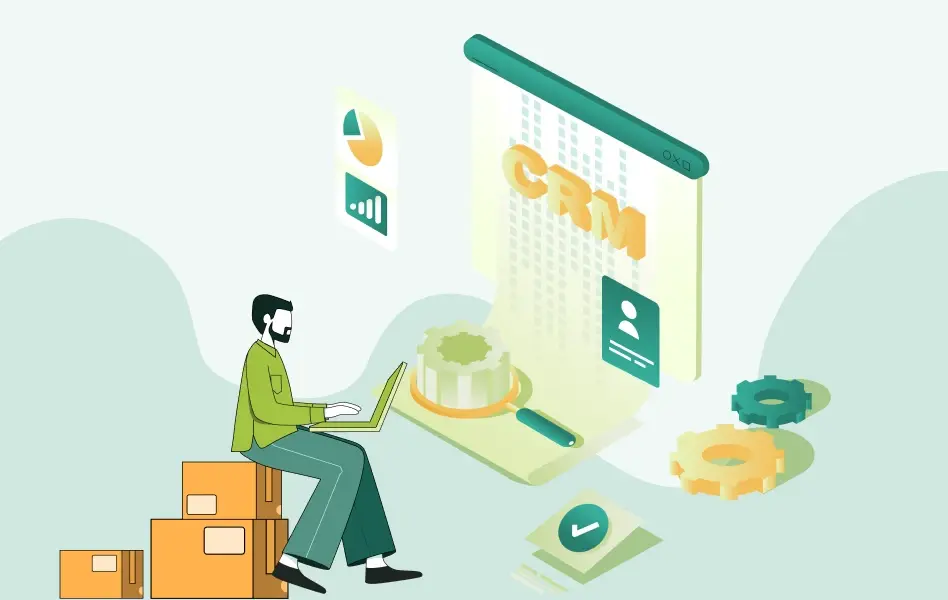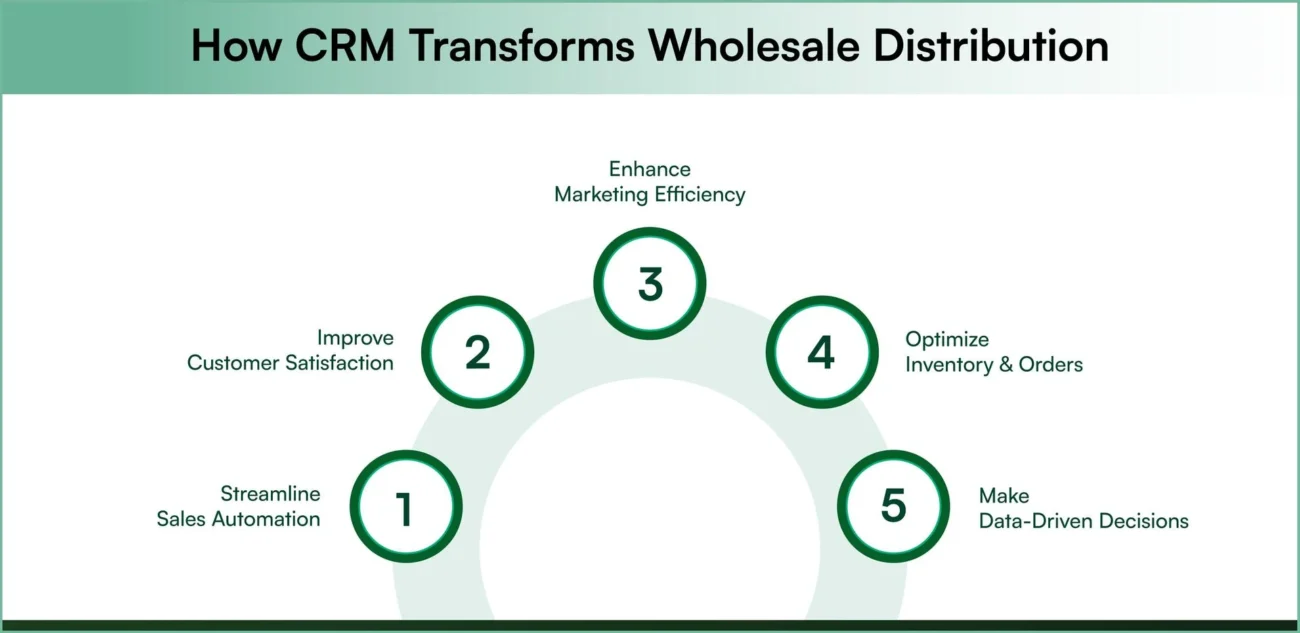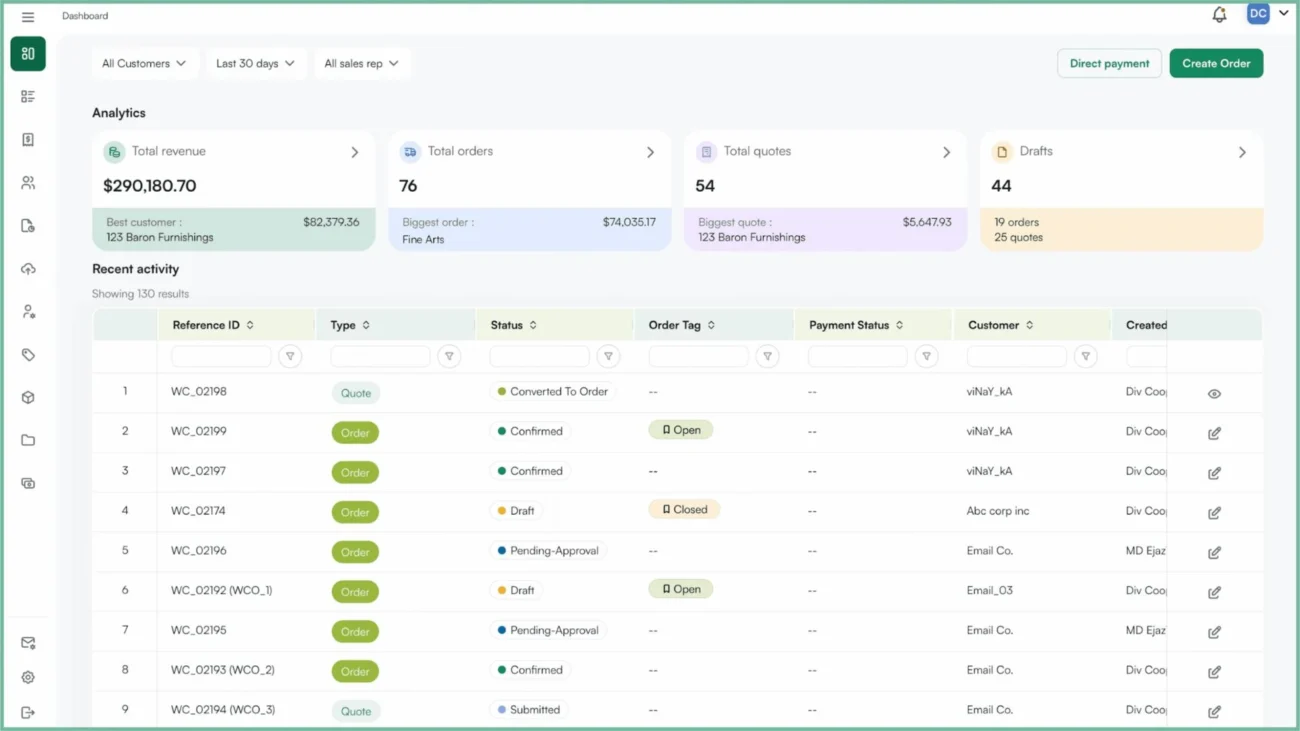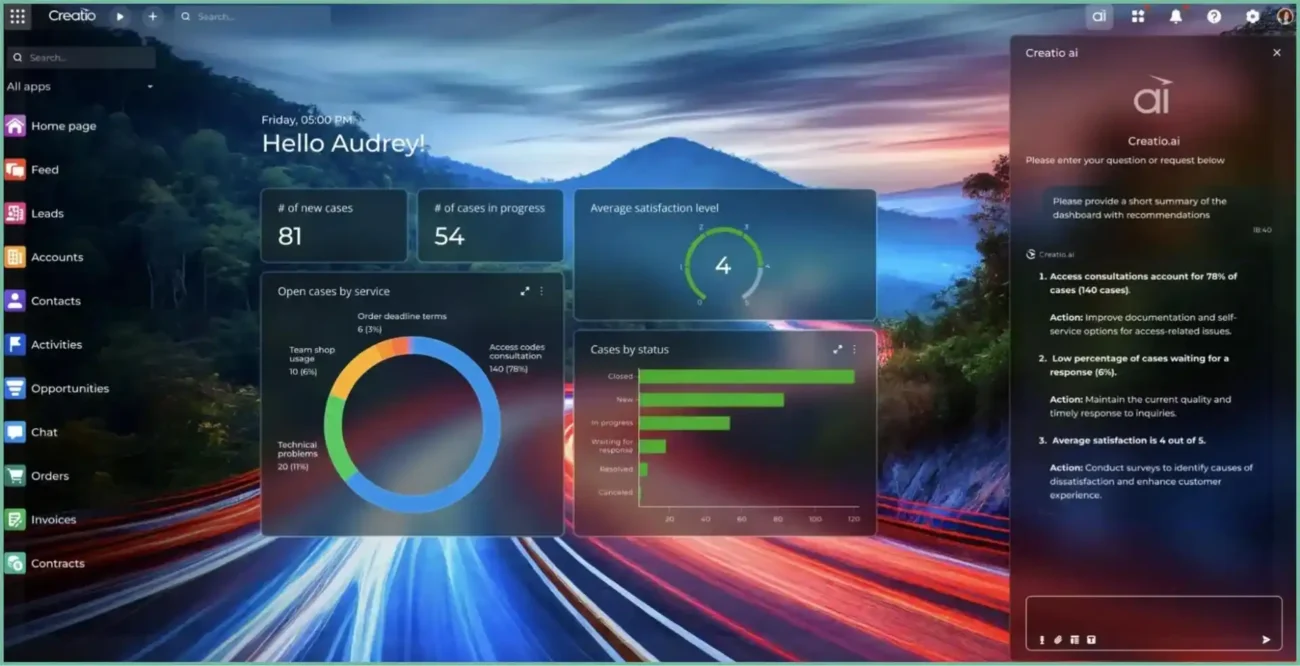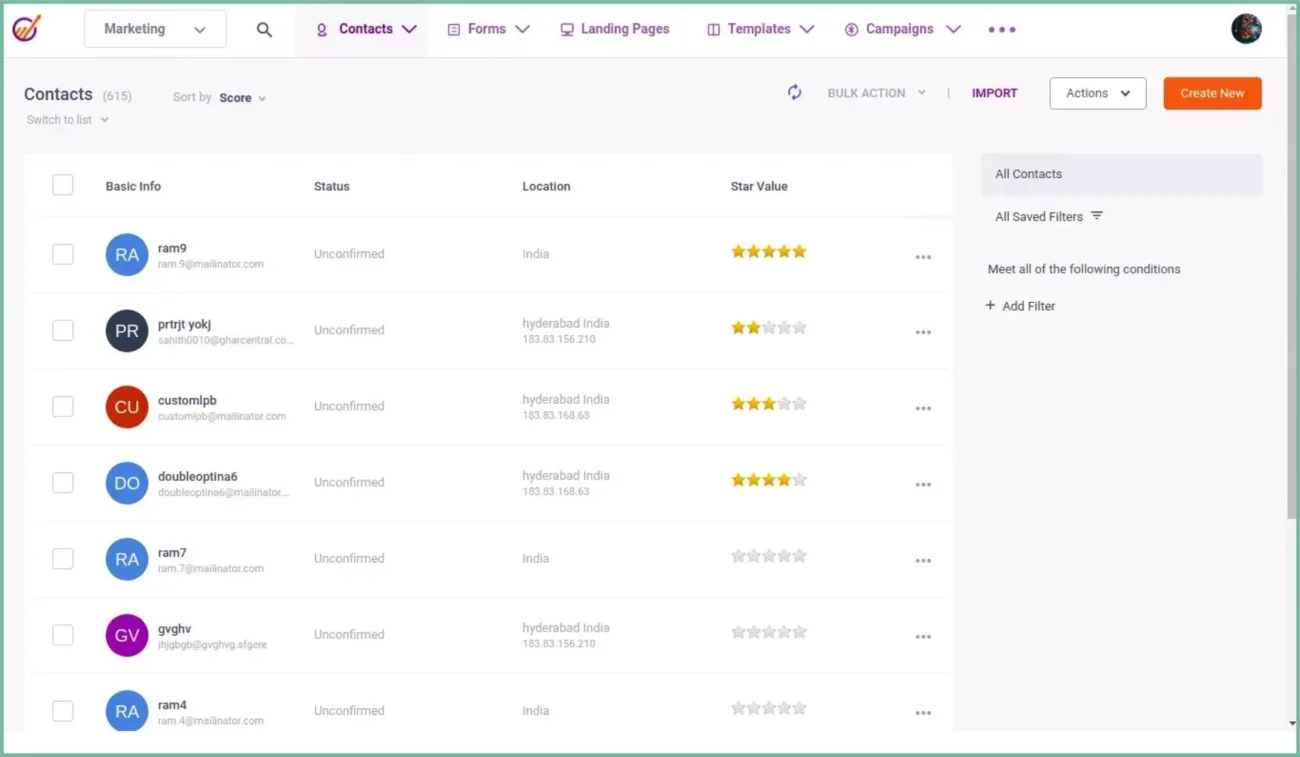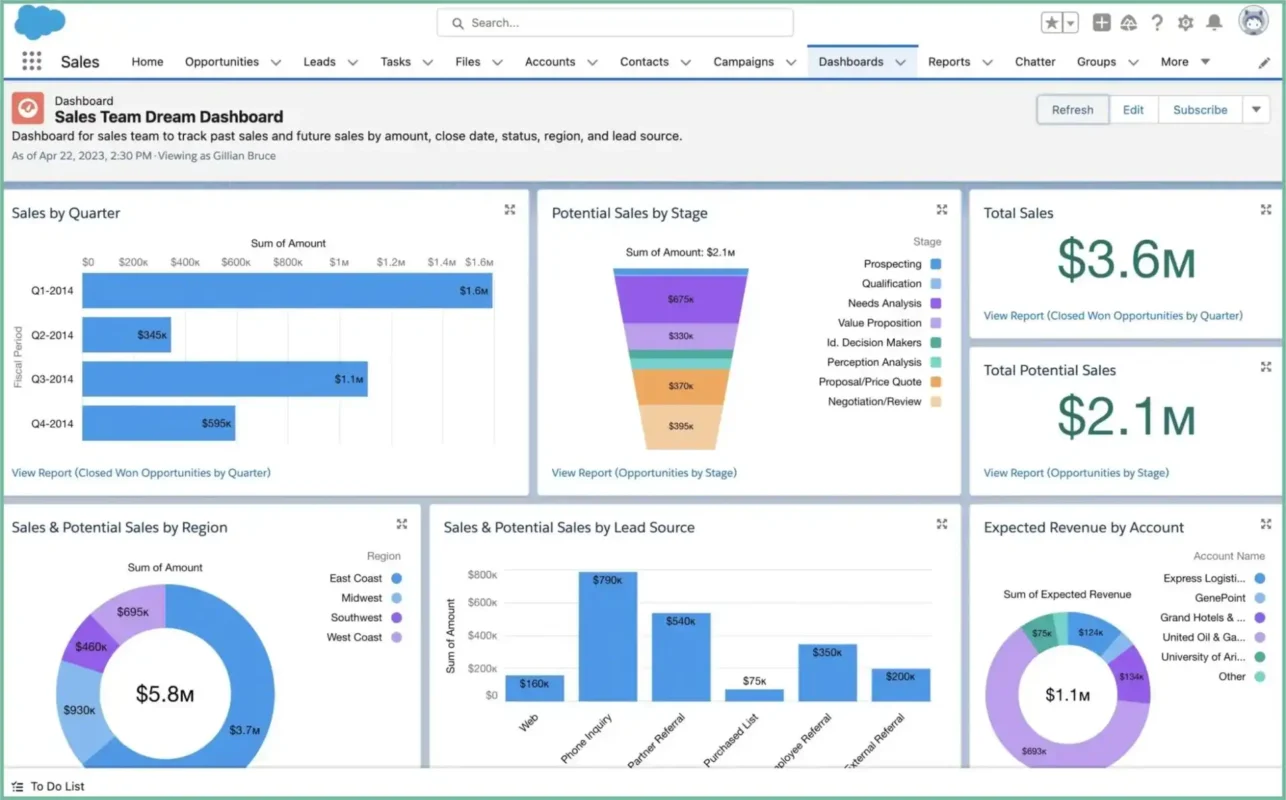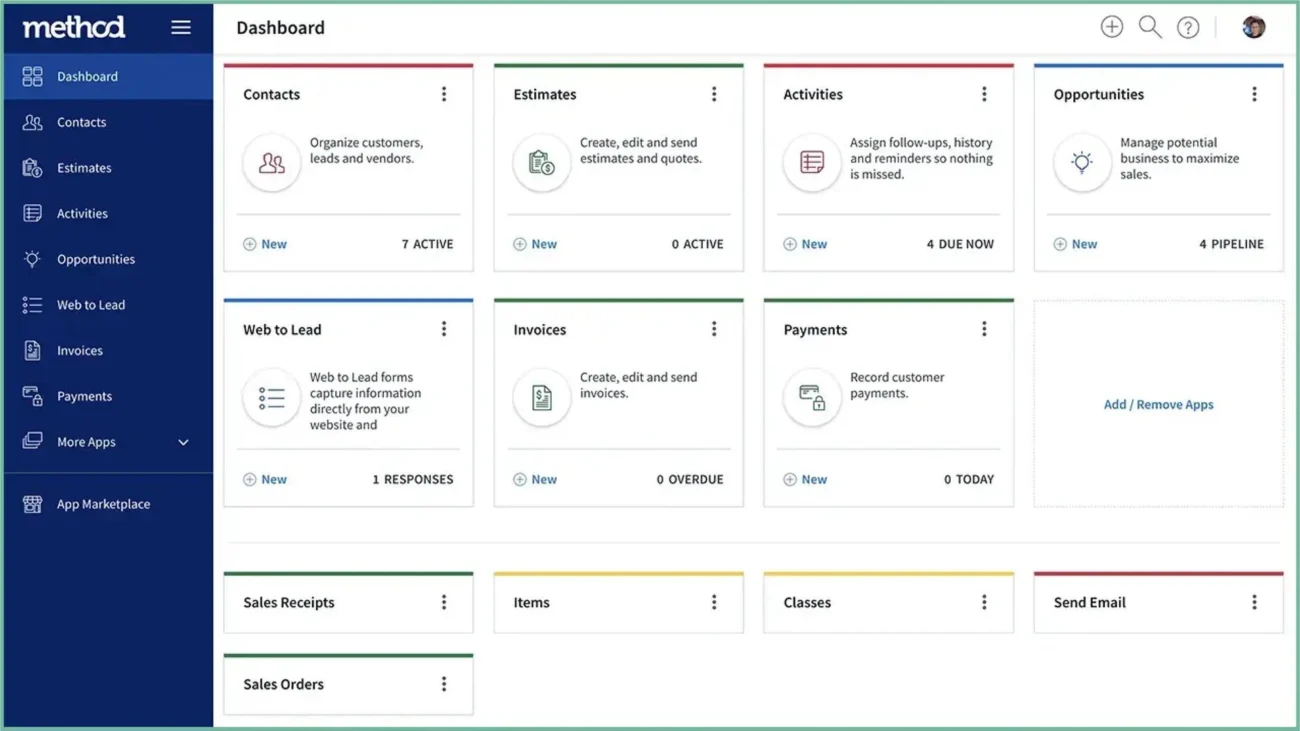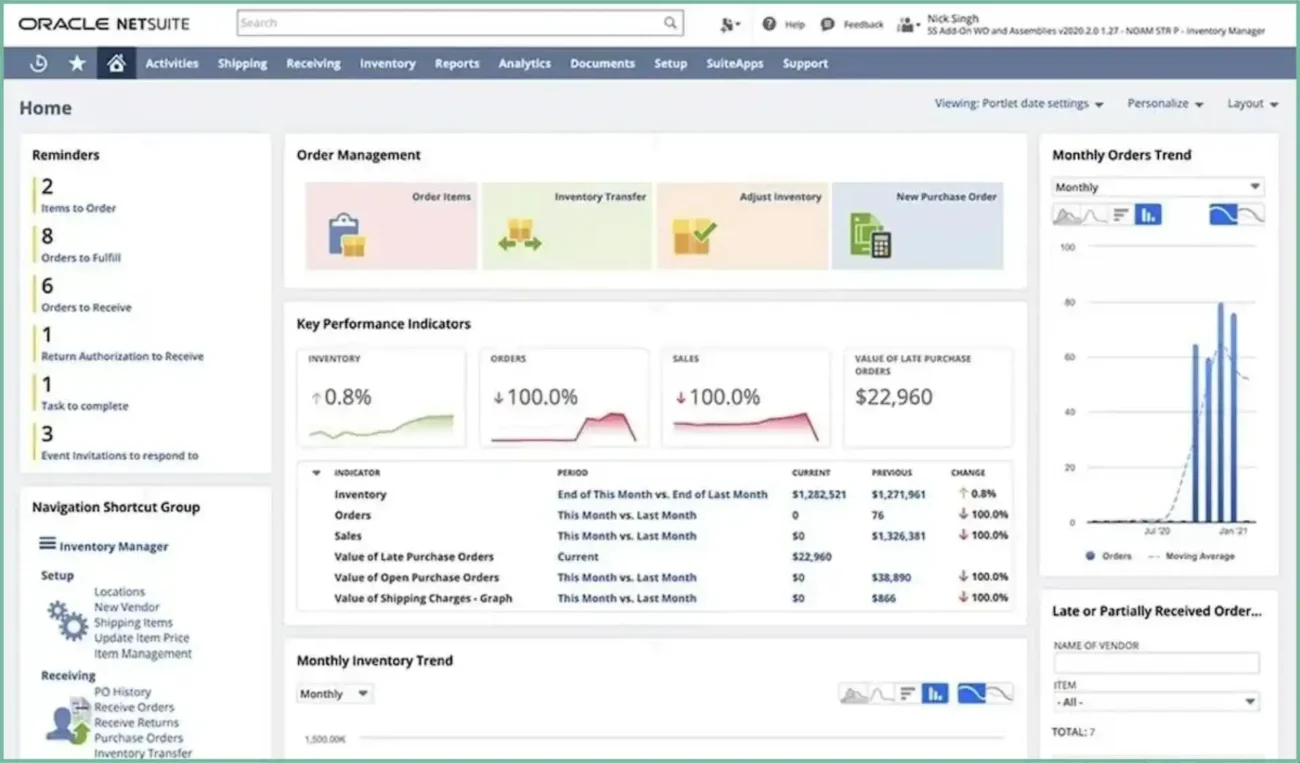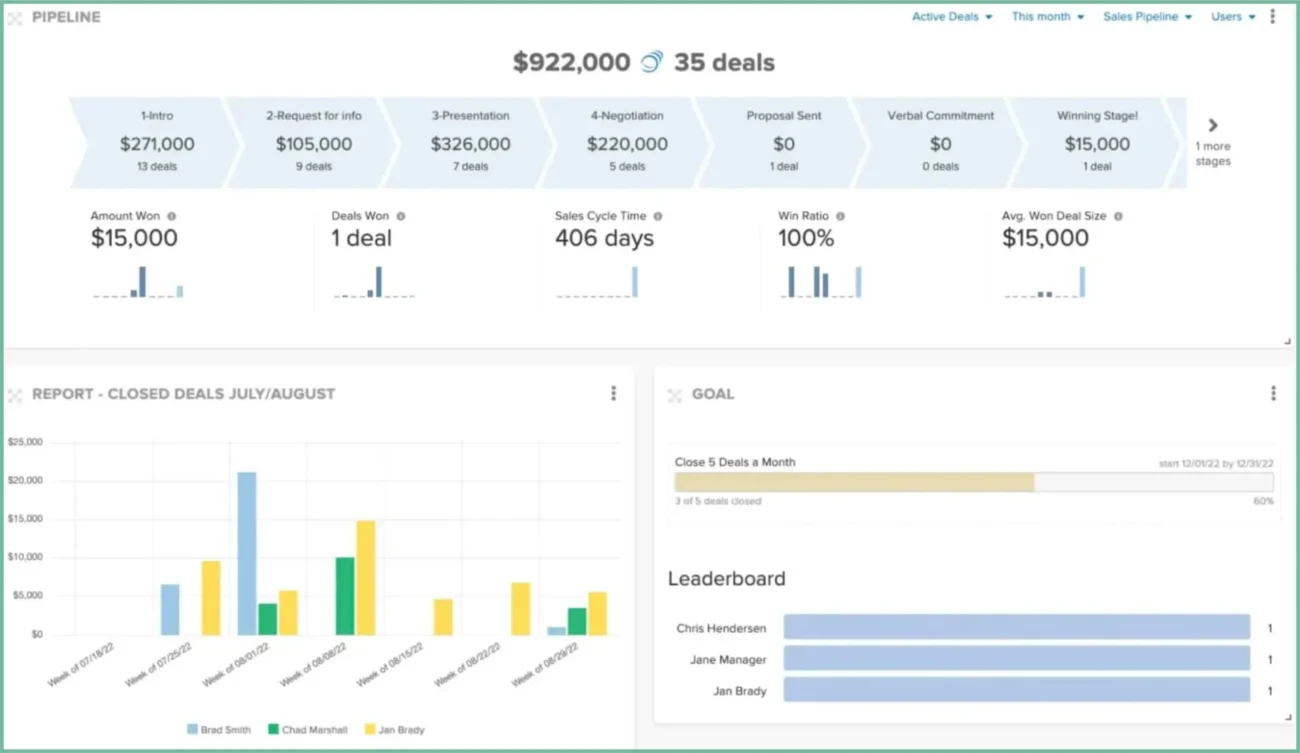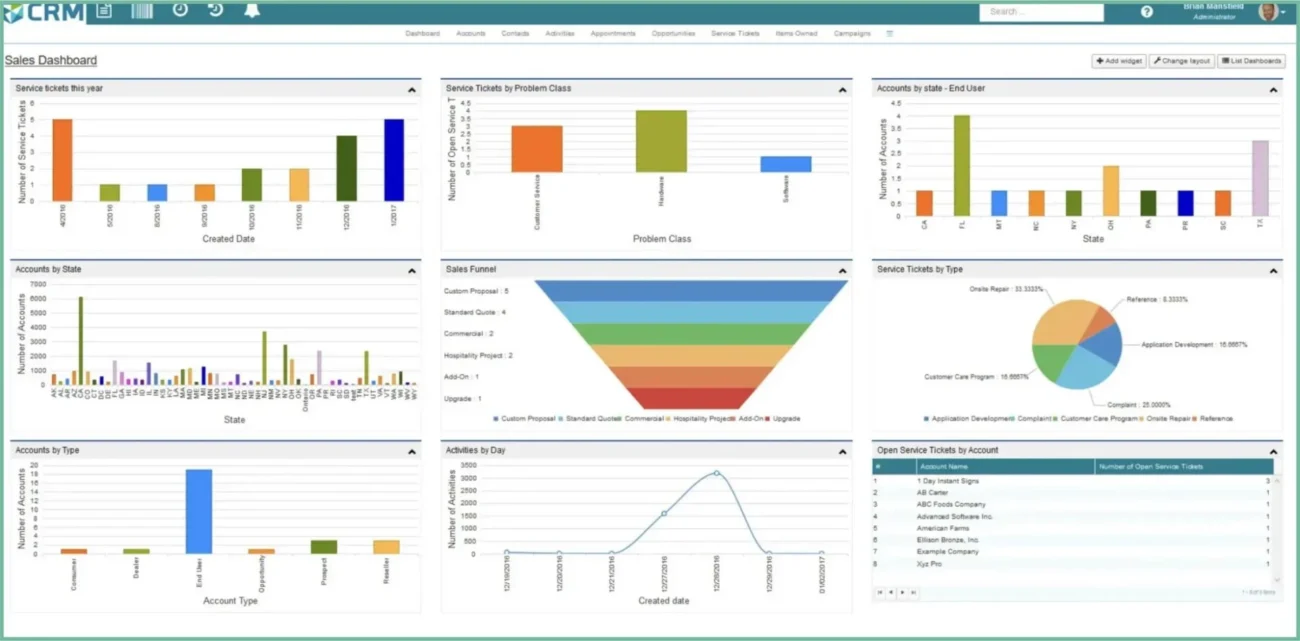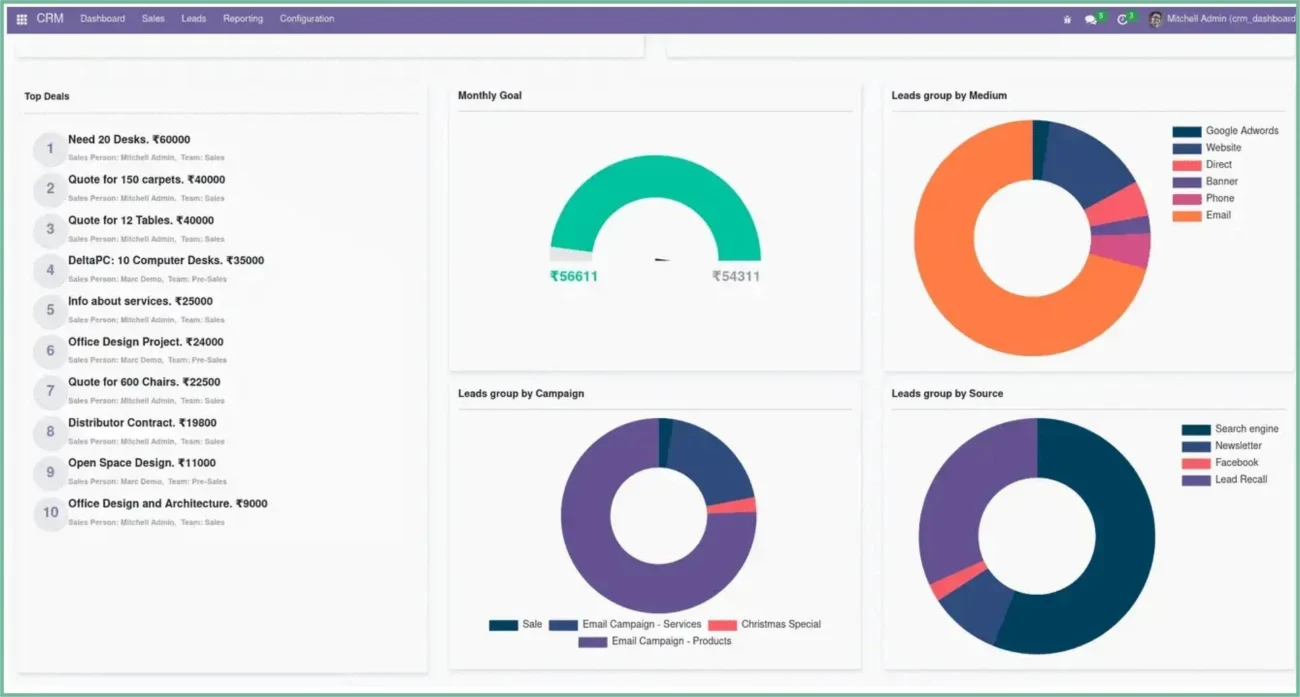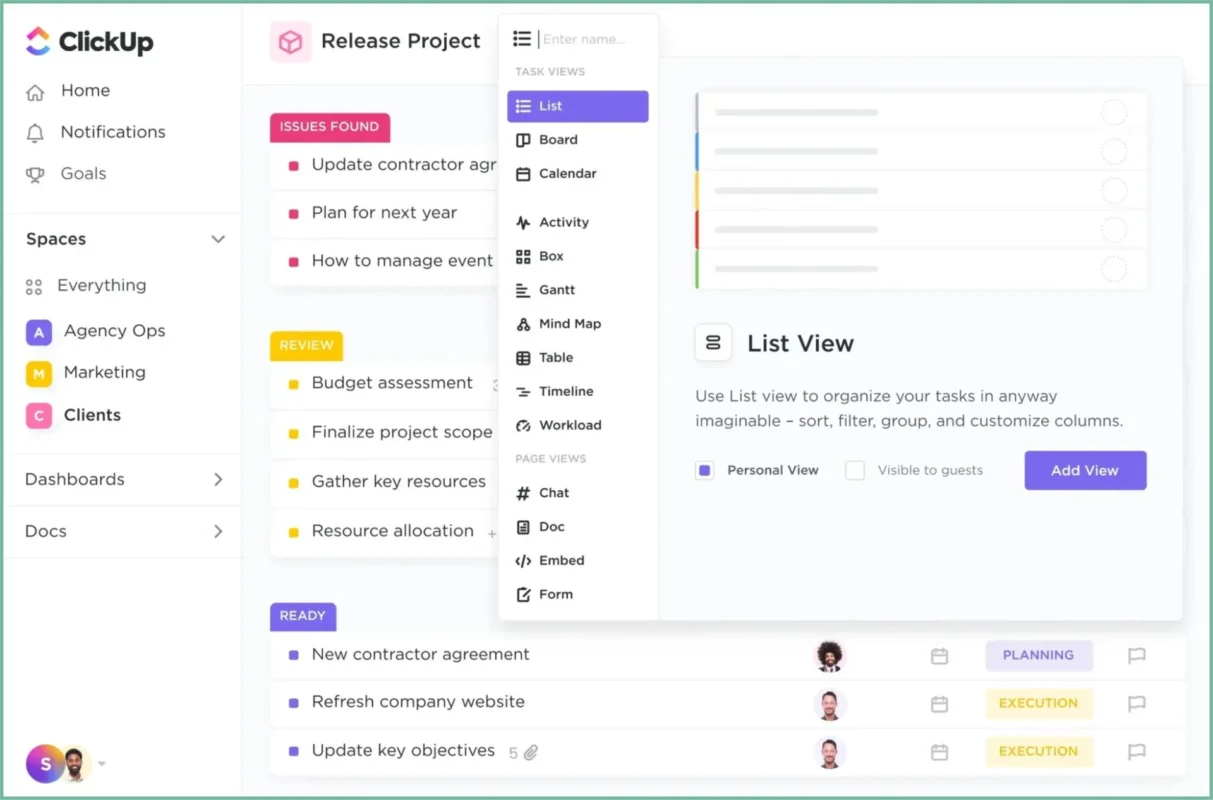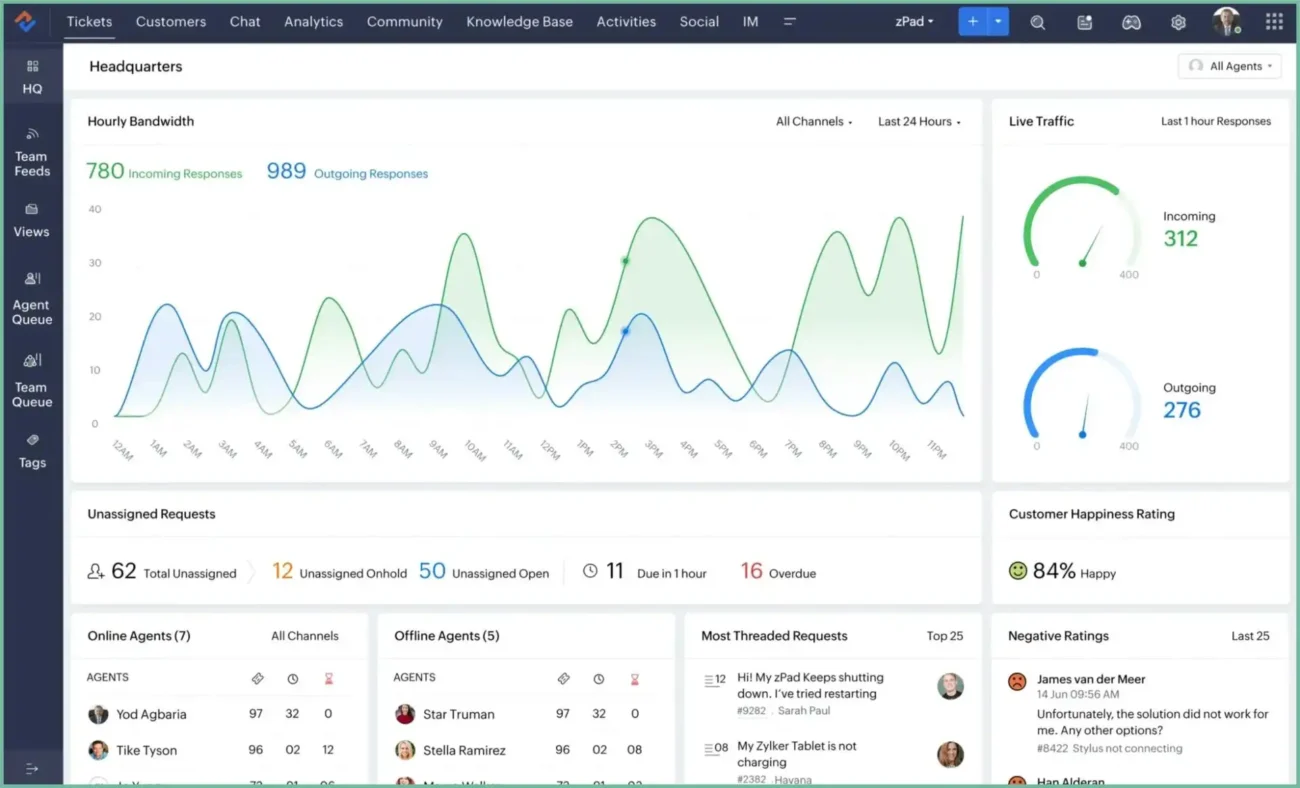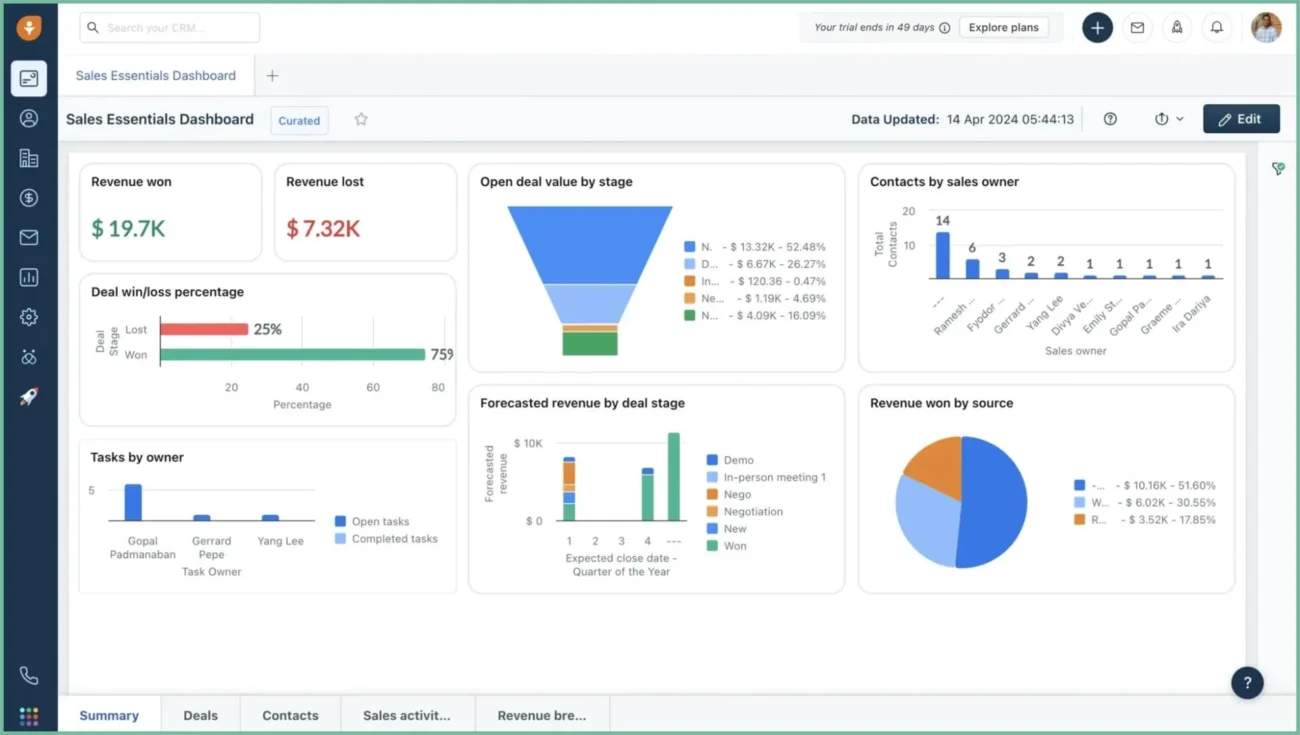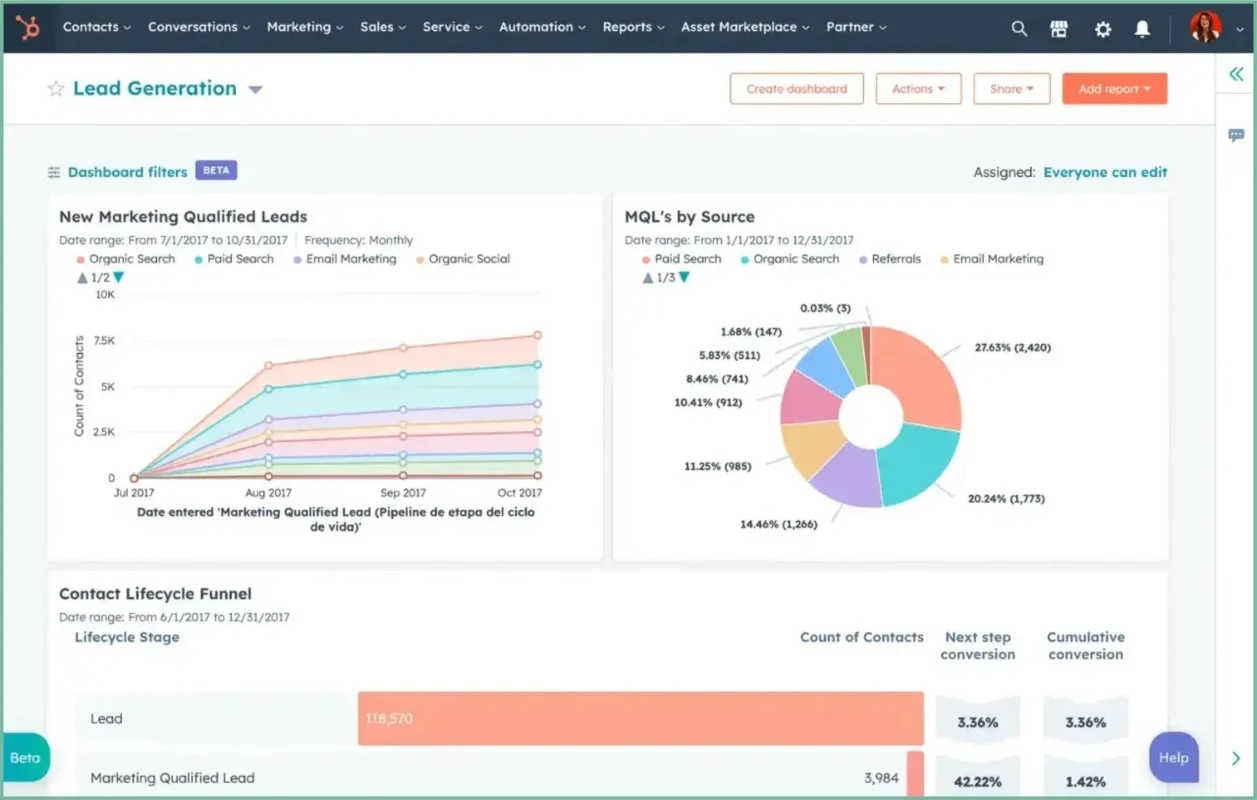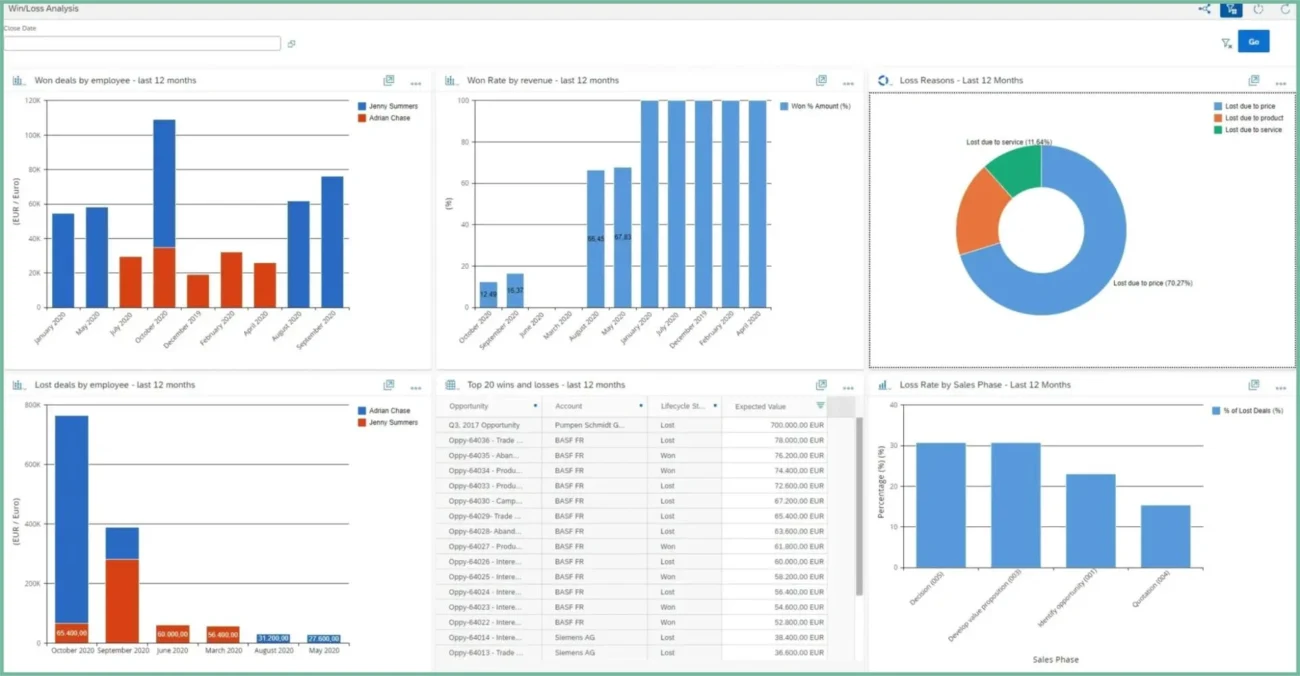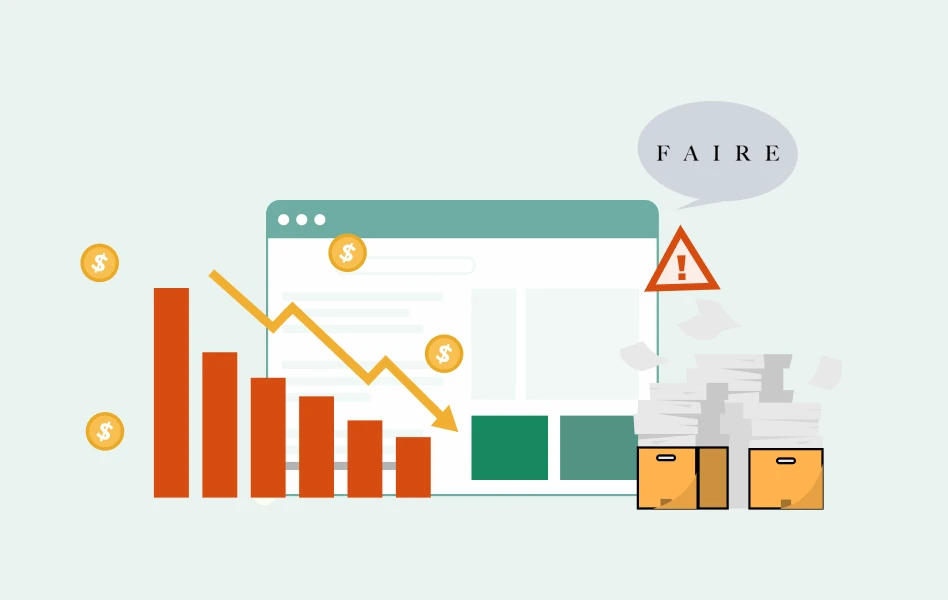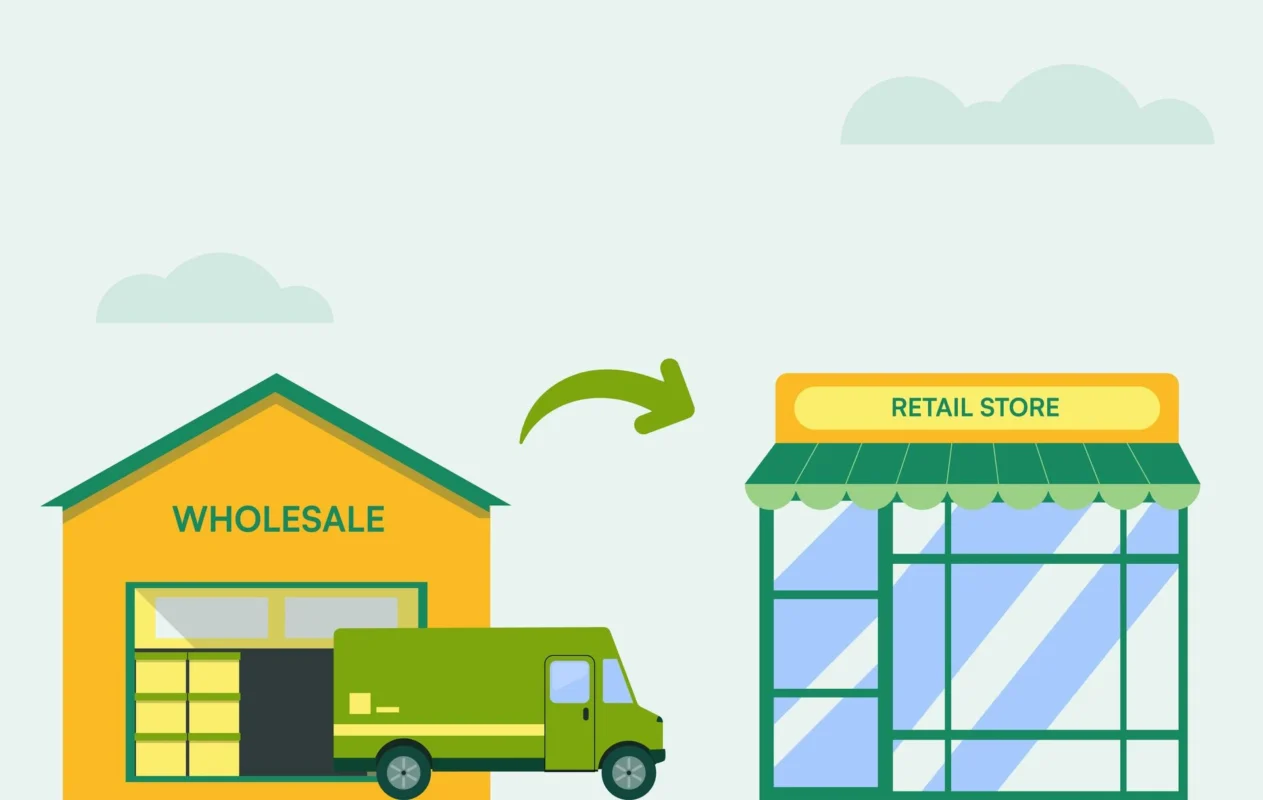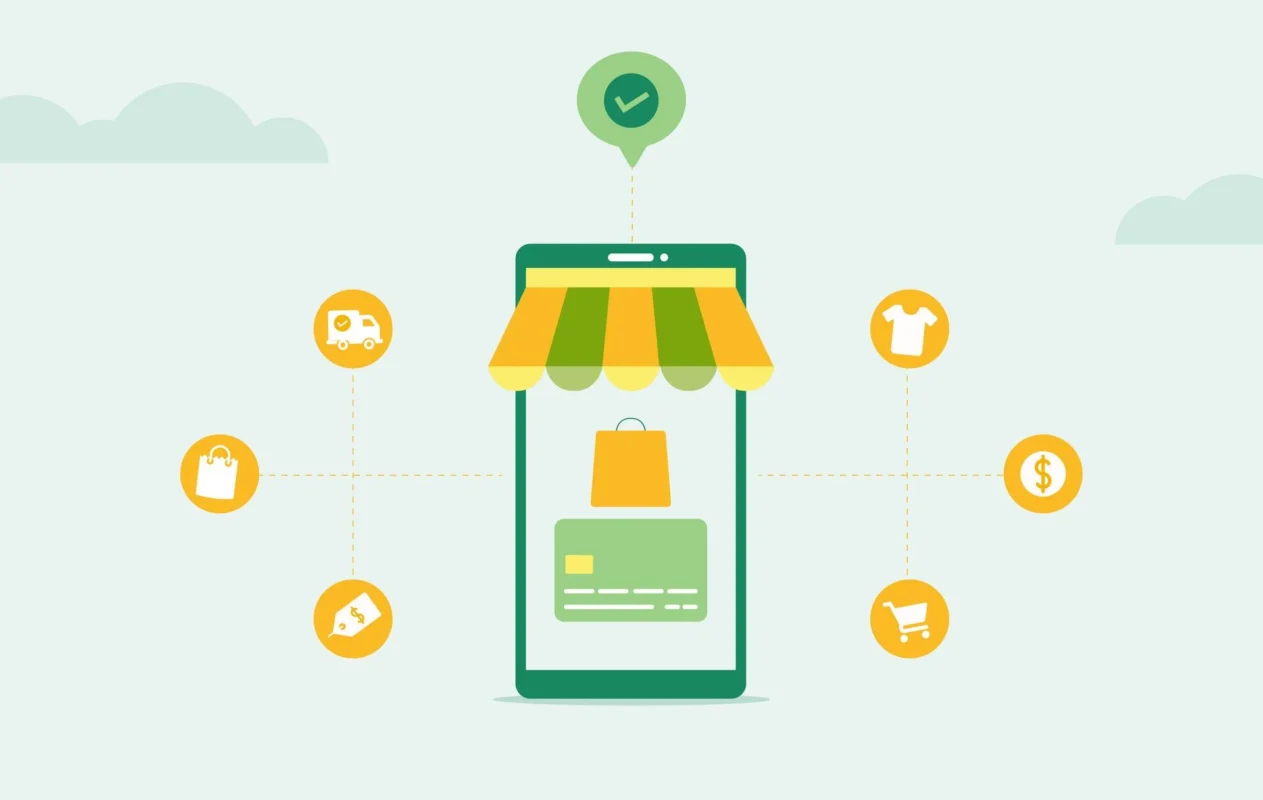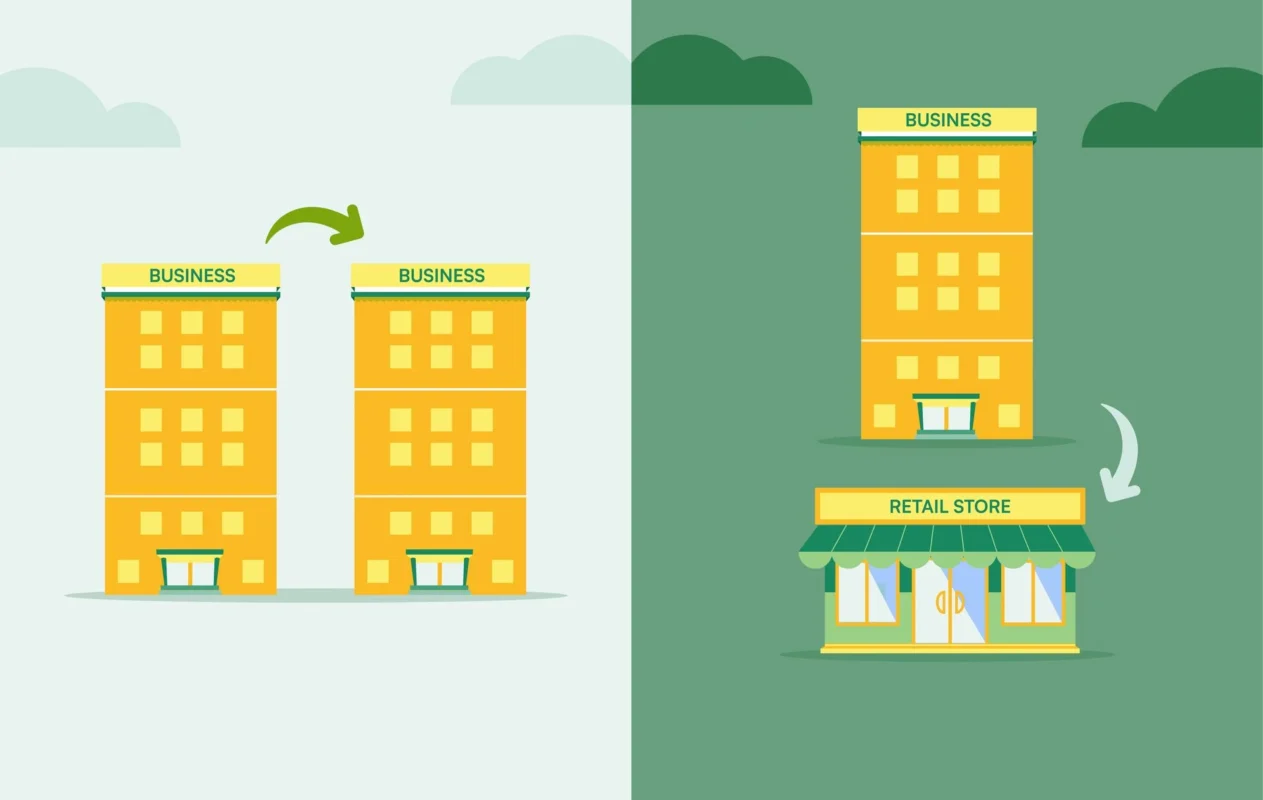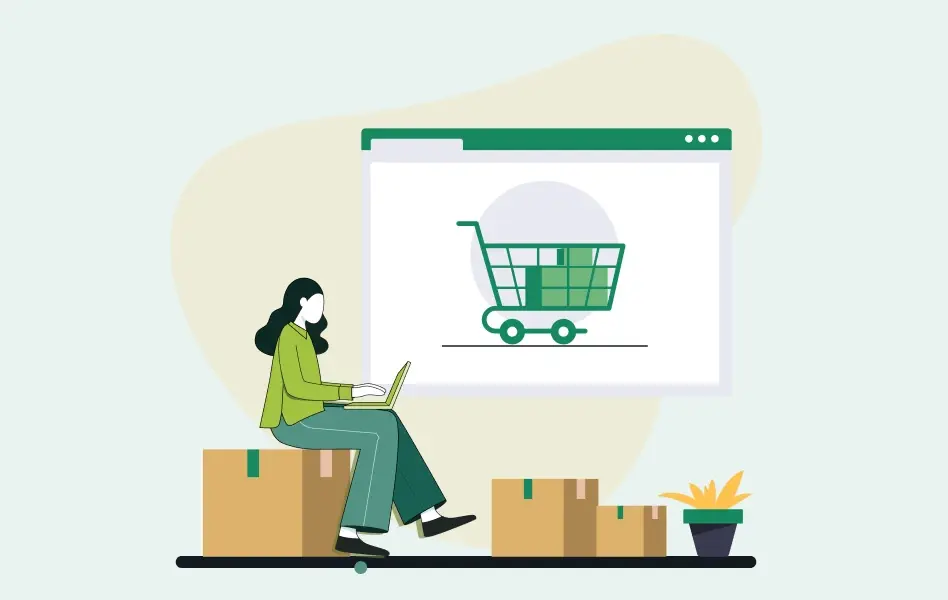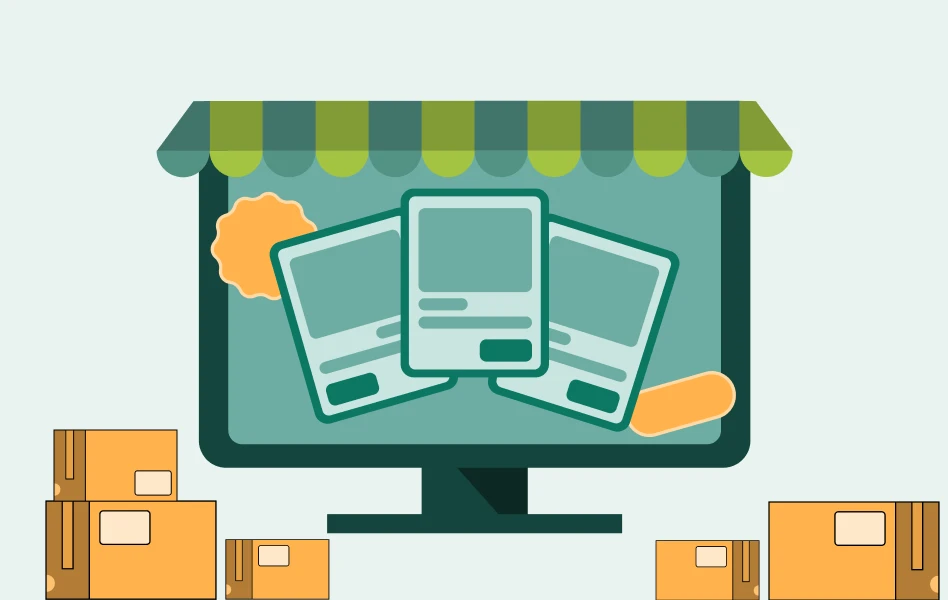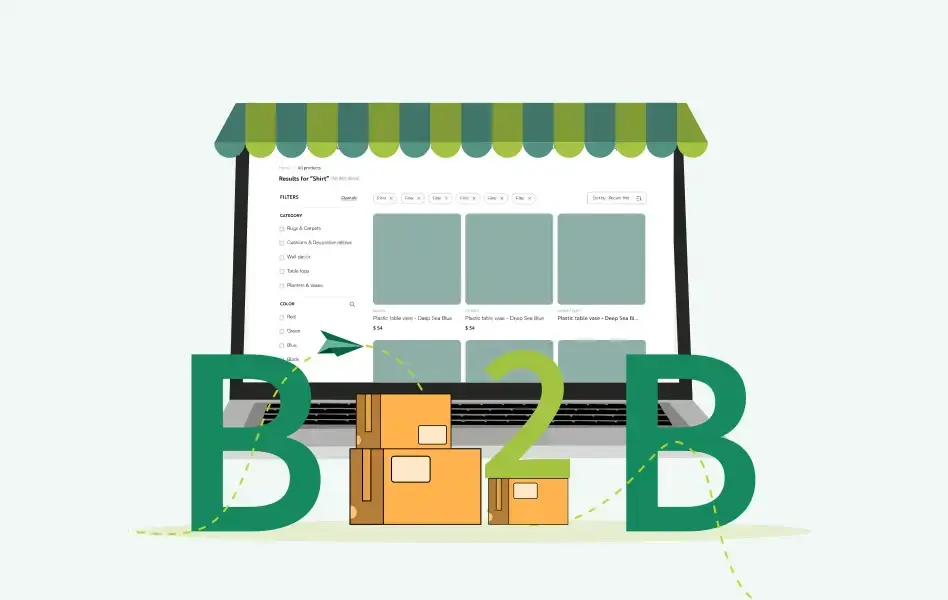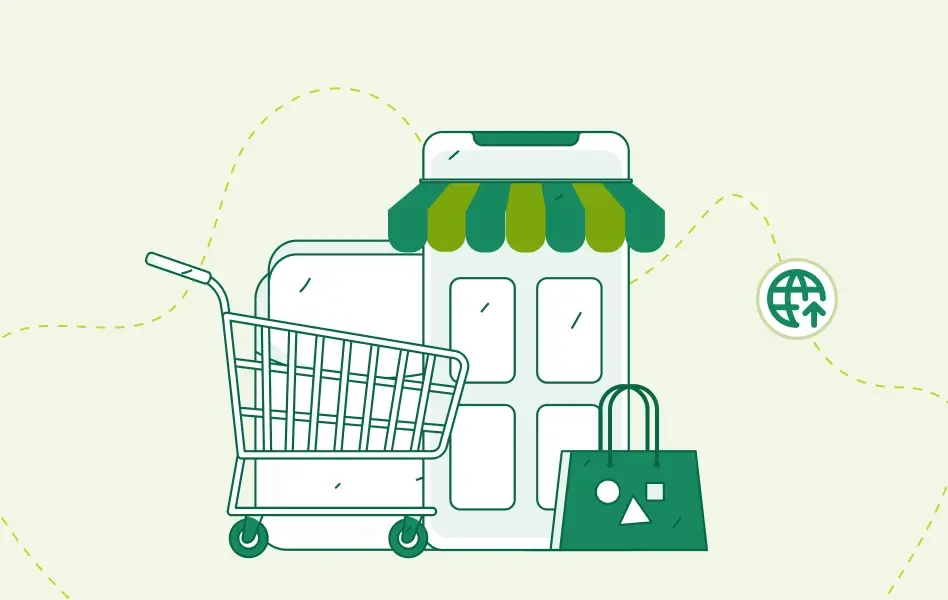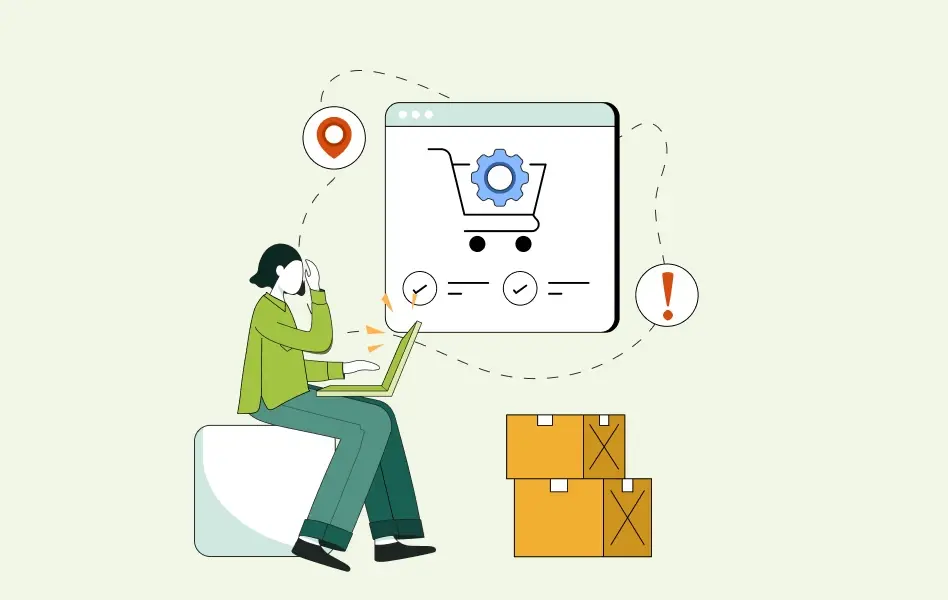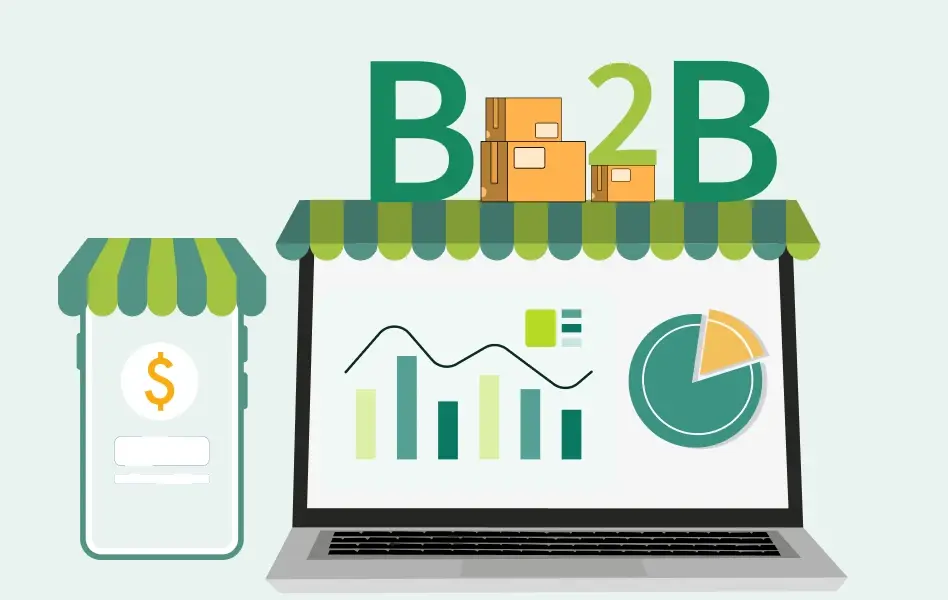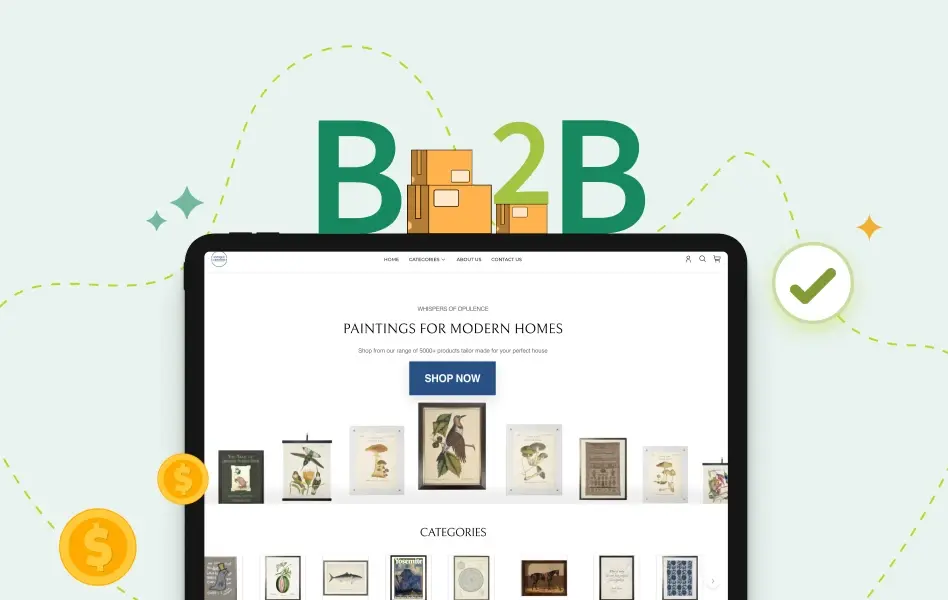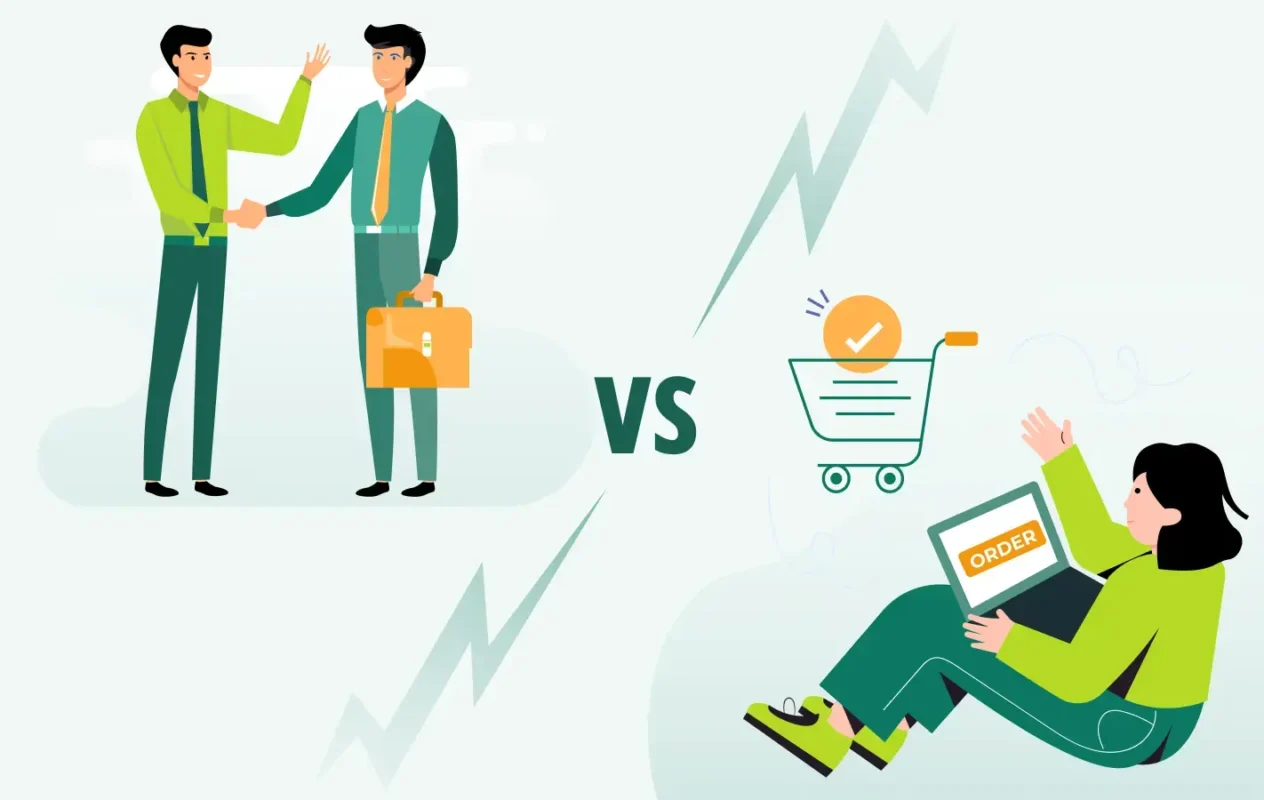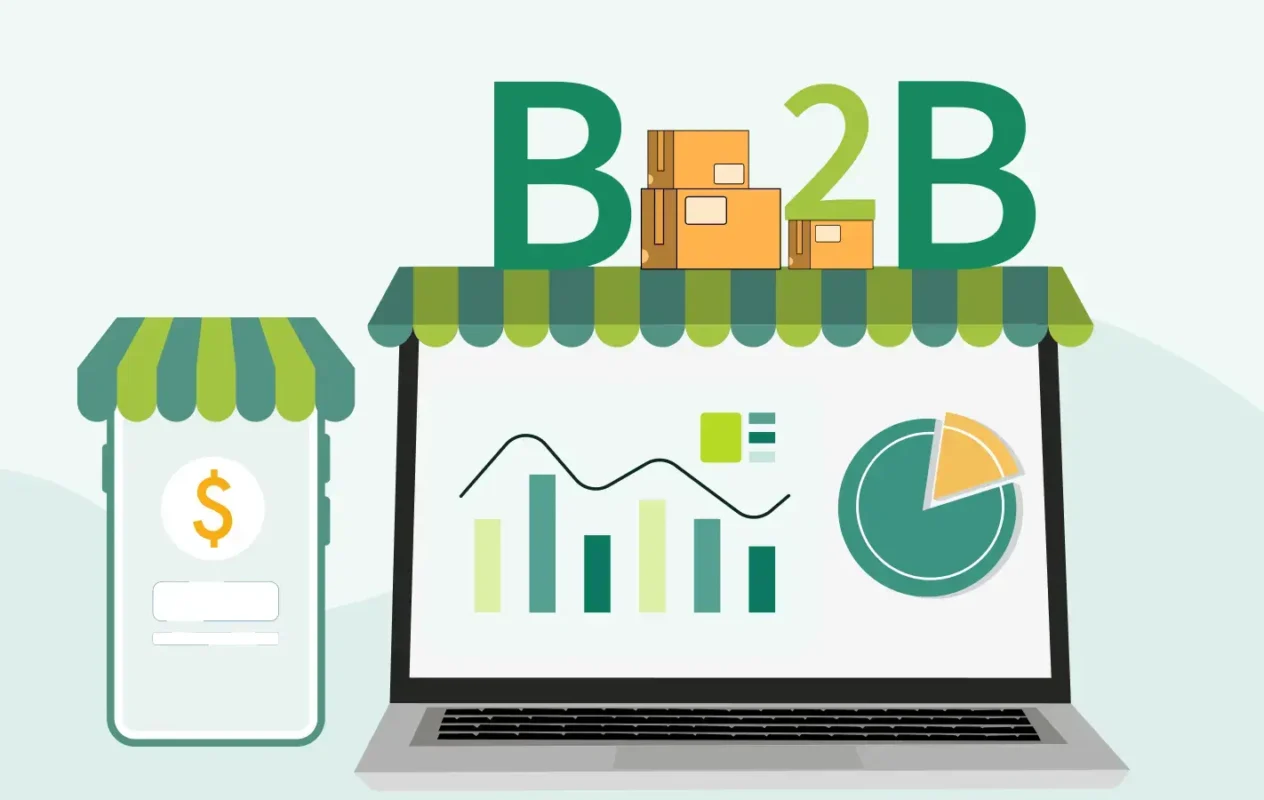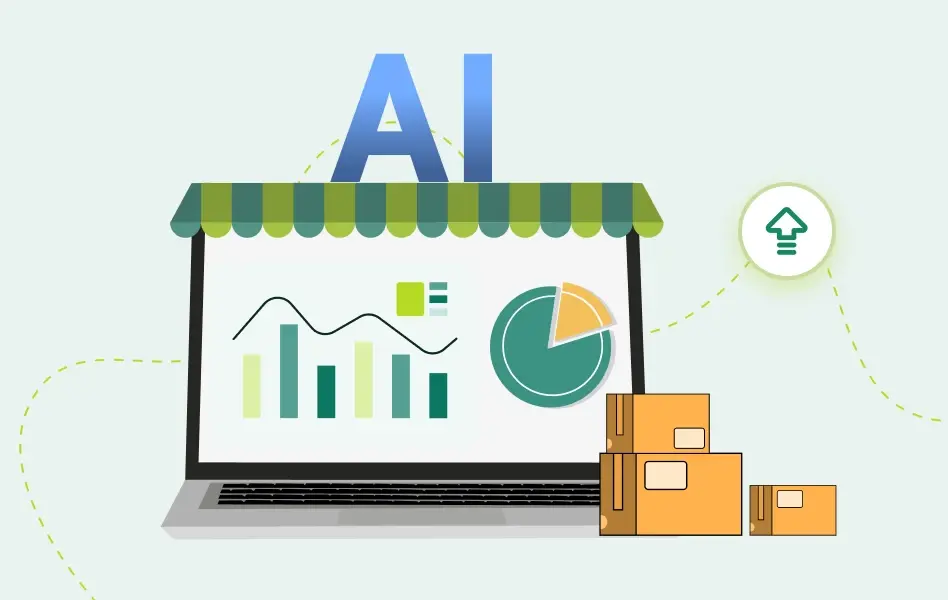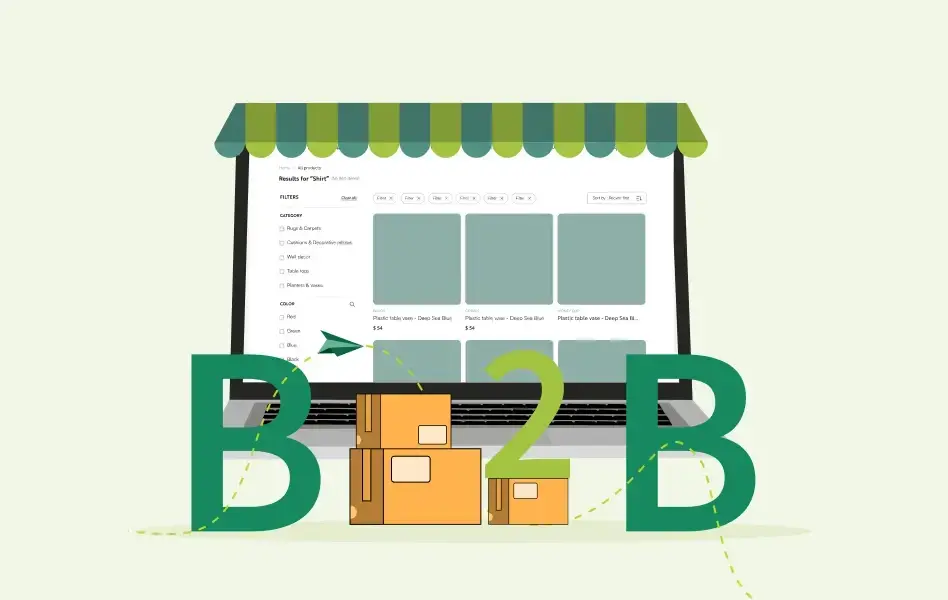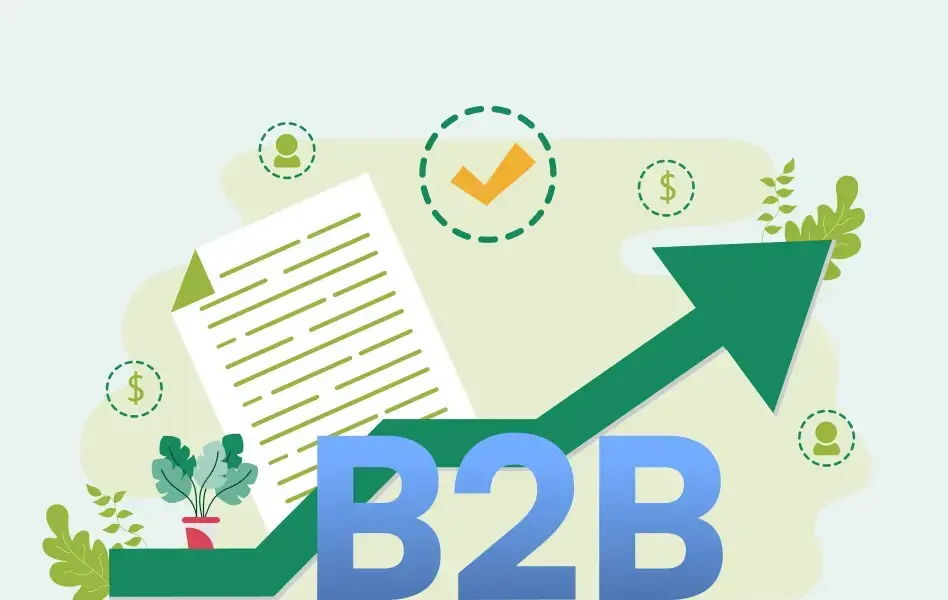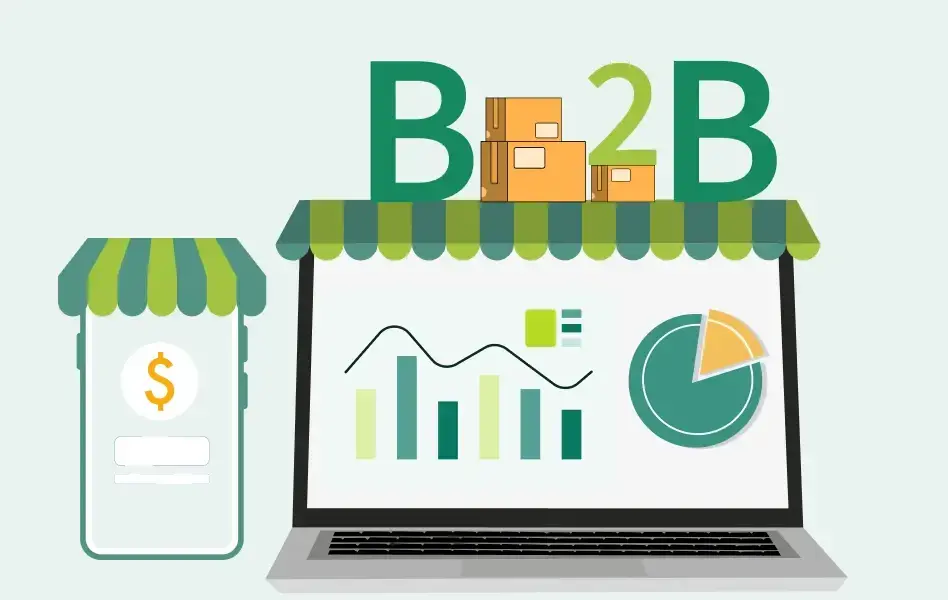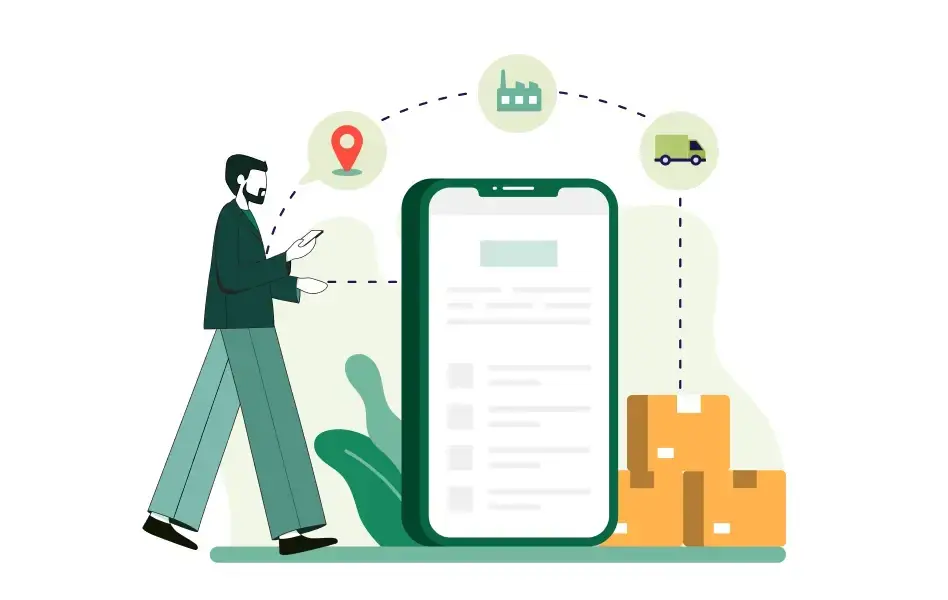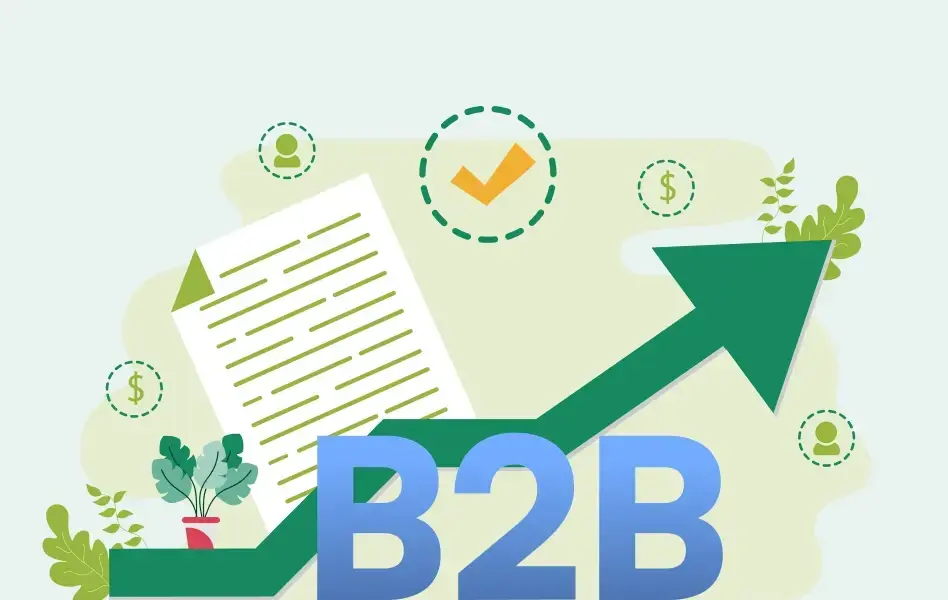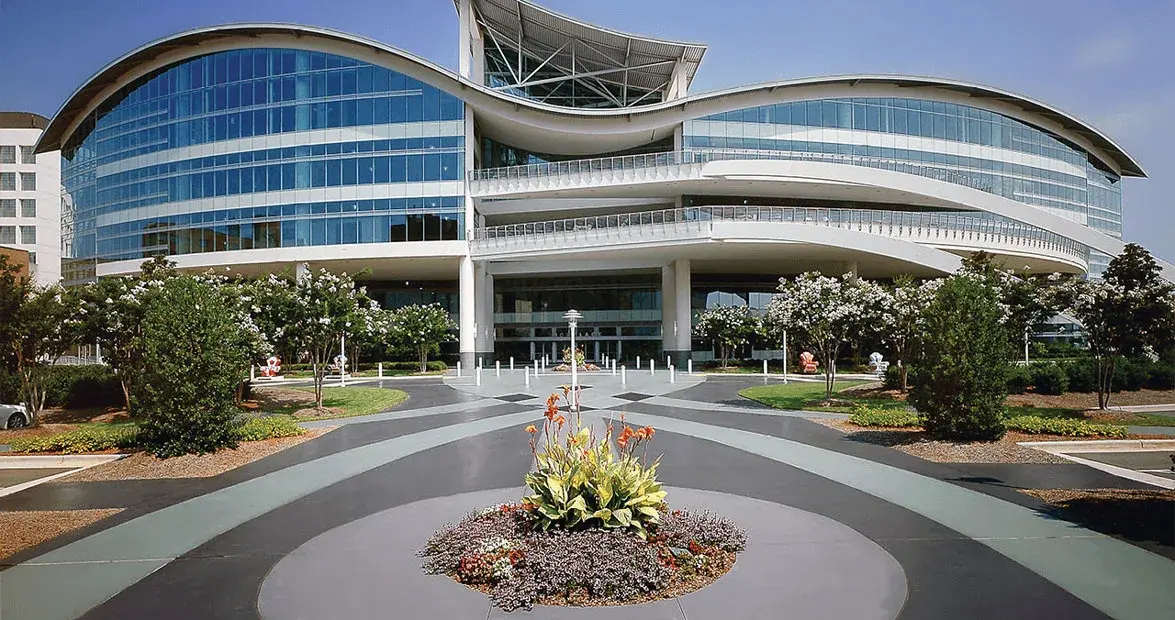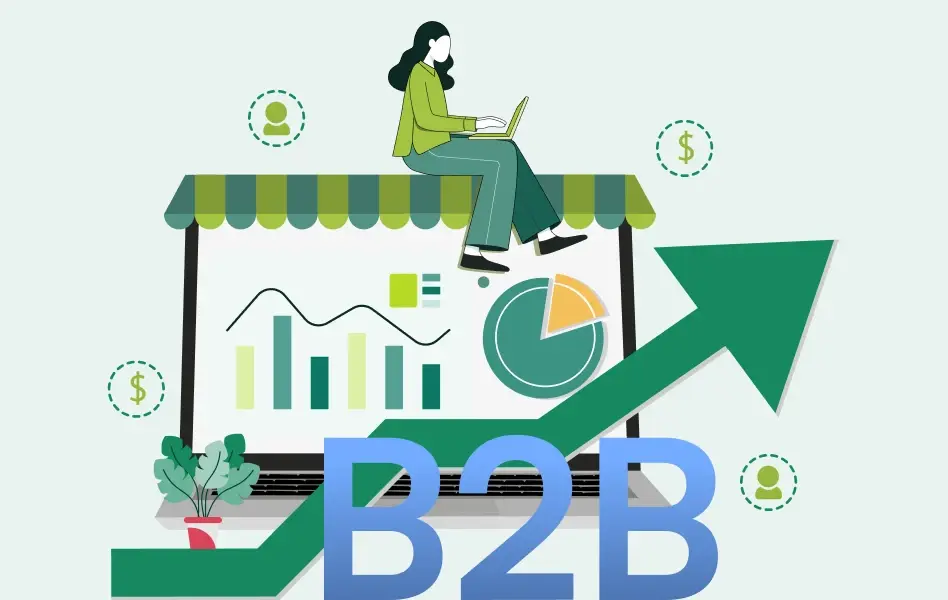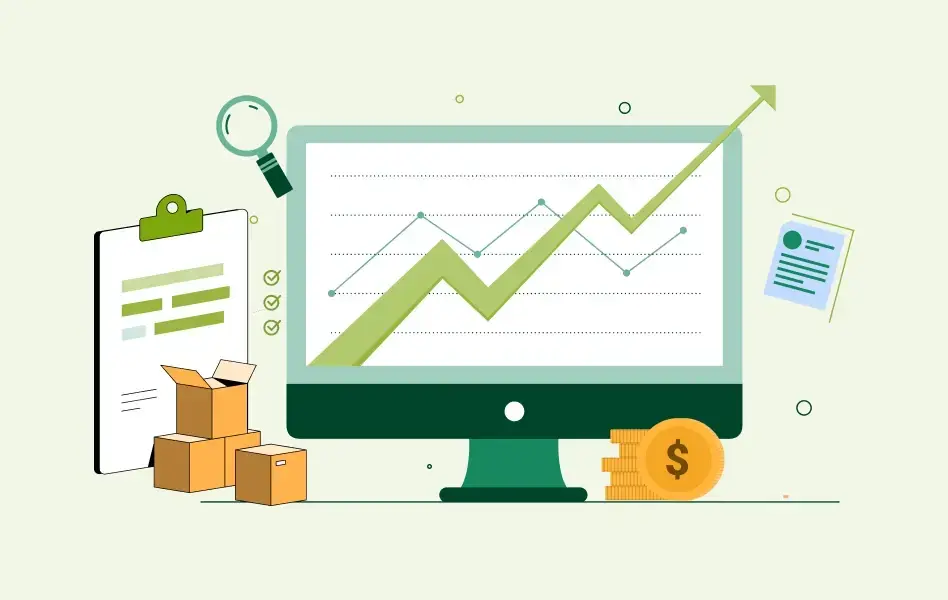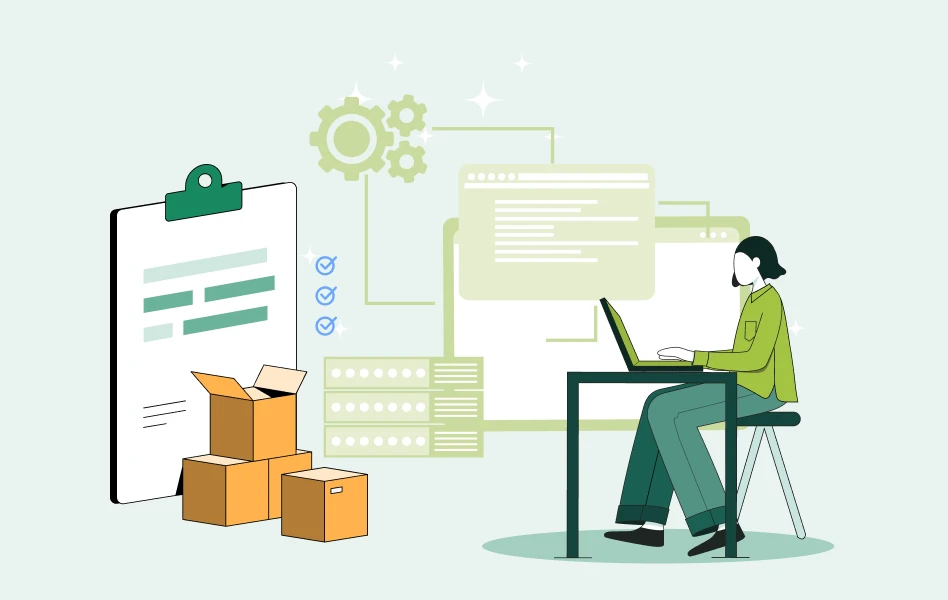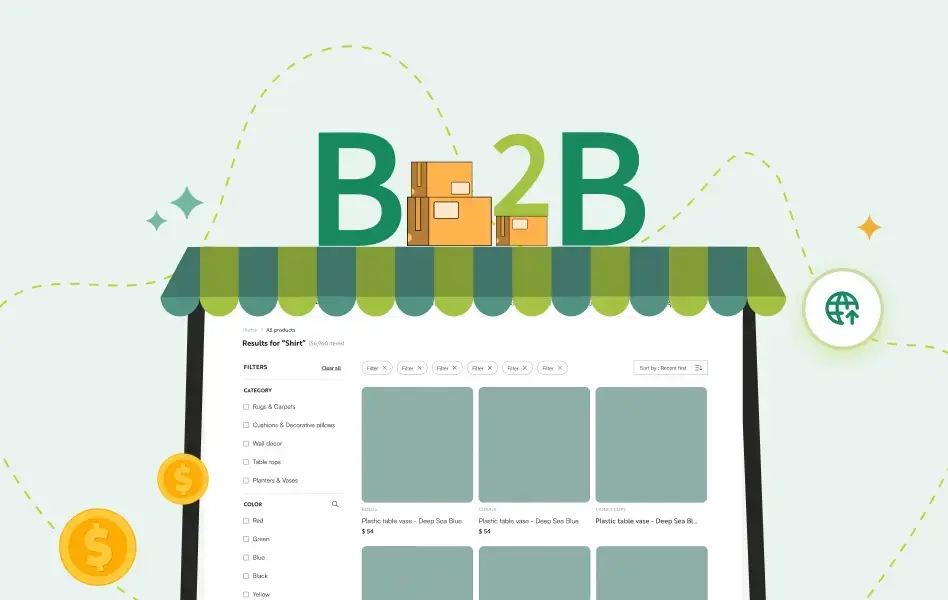Contents
- 1 What is a B2B CRM for wholesalers?
- 2 Why is a purpose-built B2B CRM for wholesalers the need of the hour?
- 3 What are the benefits of B2B CRM for wholesale distributors?
- 4 15 best B2B CRM for wholesalers in the market
- 5 What should you look for in B2B CRM for wholesale distributors?
- 6 Make the right choice for your wholesale business
- 7 Frequently Asked Questions (FAQs) on B2B CRM for wholesalers
B2B CRM for wholesalers requires specialized capabilities that distinguish it from customer relationship management in other industries. Wholesale distributors must navigate complex pricing structures, bulk ordering processes, inventory-dependent sales cycles, and B2B buyer expectations that differ significantly from consumer markets.
Most CRM systems available today were designed for general sales teams or B2C operations, creating a significant gap between wholesale operational requirements and standard CRM platform capabilities. This mismatch often results in inefficient workarounds, manual processes, and missed sales opportunities.
However, the right wholesale CRM simplifies these complex operations and boosts efficiency. With so many options available, how do you choose the best B2B CRM for wholesalers? In this guide, we explore the top wholesale CRM software solutions and what makes them the perfect fit for this dynamic industry.
What is a B2B CRM for wholesalers?
CRM for wholesalers is specialized software that helps distributors track and analyze client relationships from initial contact through long-term partnerships, designed specifically for wholesale distribution needs.
Unlike consumer-focused tools, wholesale solutions must handle:
- Volume-based pricing and account-specific rate structures
- Multi-location inventory management
- Bulk order processing and approval workflows
- Extended sales cycles with multiple decision-makers
- Integration with ERP and supply chain tools
The right platform organizes information, automates processes, and provides insights that boost satisfaction and retention. Quality solutions integrate with existing infrastructure to streamline operations, compress sales cycles, and optimize territory management.
For wholesale businesses operating in competitive markets, the right CRM becomes a critical tool for managing complex partnerships and scaling operations efficiently.
Why is a purpose-built B2B CRM for wholesalers the need of the hour?
General-purpose CRMs fall short of addressing the unique operational challenges that wholesale distributors face. Unlike other business models, wholesalers manage extensive product catalogs and navigate complex, multi-stage sales processes that generic CRM platforms simply cannot handle effectively.
The sales rep challenge
Sales representatives struggle with general-purpose CRMs that lack essential wholesale features like real time inventory management, detailed product specifications, and integrated order tracking. Without these capabilities, reps spend excessive time on manual data entry and often work with outdated information, directly impacting their ability to close deals efficiently.
Integration gaps
Most generic CRMs lack seamless integration with ERP systems and e-commerce platforms, creating data silos that prevent real-time visibility into sales performance, inventory levels, and customer behavior. This disconnect makes accurate forecasting and inventory reporting nearly impossible.
The solution: Purpose-built platforms
Wholesale-specific CRM solutions address these challenges by offering native inventory management, automated order management, and deep ERP integration. In an industry characterized by thin margins and intense competition, having tools designed specifically for wholesale operations has become essential for maintaining efficiency and driving profitable growth.
What are the benefits of B2B CRM for wholesale distributors?
CRM for wholesale distributors offers transformative benefits, addressing the unique challenges of managing inventory, customer data, and complex sales cycles. Wholesale CRM software simplifies operations and enhances efficiency. Let’s explore the key advantages of using a CRM specifically for wholesale distributors.
1. Streamline sales automation
Automated workflows handle repetitive tasks like follow-ups, quote generation, and customer record updates, significantly increasing sales efficiency. This automation allows sales representatives to focus on building meaningful relationships and closing deals rather than administrative work, driving overall productivity and revenue growth.
2. Improve customer satisfaction
Centralized customer data provides complete visibility into buying preferences, order history, and past interactions. This comprehensive view enables personalized service and enhanced customer experiences, resulting in stronger long-term business relationships and improved customer retention rates.
3. Improving marketing efficiency
Advanced segmentation capabilities allow precise customer targeting and data-driven campaign creation. Automated marketing workflows schedule communications and nurture prospects through the sales funnel, while detailed analytics help optimize resource allocation and measure campaign effectiveness for better ROI.
4. Optimize inventory and order monitoring
Real-time inventory integration creates seamless order tracking and inventory management processes. Sales teams gain instant access to accurate stock levels, product information, and order status, reducing manual errors and enabling informed customer commitments that improve satisfaction and operational efficiency.
5. Leverage analytics to make better decisions
Comprehensive reporting and analytics highlight sales trends, customer behavior patterns, and demand forecasting opportunities. These valuable insights enable proactive inventory management, strategic pricing decisions, and performance optimization that drive long-term profitability and competitive advantage.
Now that we’ve established the key benefits of wholesale-specific CRM systems, the critical question becomes: which platforms actually deliver these capabilities? With dozens of CRM solutions claiming to serve wholesale businesses, choosing the right one requires careful evaluation of features, integration capabilities, and industry focus.
Let’s examine the top CRM options available to wholesale distributors in 2025.
15 best B2B CRM for wholesalers in the market
The right CRM can change how you operate as a wholesaler, but picking the right one among the many options available can be daunting. So, to help you decide, we’ve rounded up 15 of the best wholesale CRM software solutions.
1. WizCommerce
Unlike other CRMs that operate on a horizontal SaaS model to cater to all industries and aim to be a one-size-fits-all platform, WizCommerce’s B2B CRM adopts a vertical SaaS approach. It is purpose-built for wholesale operations, drilling deep into the unique challenges of wholesalers to deliver targeted, industry-specific solutions.
This specialized focus makes WizCommerce CRM the best choice for wholesalers aiming to streamline operations and drive growth.
| Feature | Description |
| Vertical SaaS Approach | Purpose-built for wholesale businesses with industry-specific capabilities, unlike generic, one-size-fits-all platforms. |
| ERP & Website Integration | Seamless integration with ERP and websites enables real-time sync of inventory, orders, and customer data. |
| Activity Tracking for Reps | Sales reps get instant access to inventory levels, order status, shipping updates, and tracking information. |
| Customer Reordering Insights | Identifies customers likely to reorder based on purchase history and website activity. |
| Inventory & Order Management | Real-time visibility into available inventory, order status, shipping info, and tracking to support efficient customer interactions. |
| Infinite Customization | Fully customizable workflows, permissions, and configurations to suit unique business processes. |
| Comprehensive Sales Tools | Create professional quotes, wish lists, presentations, and orders—helping teams close deals faster. |
| AI Product Recommendations | Uses AI to suggest relevant products, enabling smarter upselling and cross-selling strategies. |
| Account Management | Centralized view of all customer data for more personalized and effective account handling. |
| Advanced Reporting & Analytics | Custom reports and analytics tools to monitor performance, forecast trends, and make informed decisions. |
| Campaign & Pipeline Management | Tools to manage sales pipelines and run targeted marketing campaigns designed for wholesale sales cycles. |
| Mobile CRM Functionality | Mobile access to CRM features including data views, task management, and conversation logging from any location. |
| Enterprise-Grade Security | Built-in security and compliance features to safeguard business data and ensure enterprise-level protection. |
Benefits of WizCommerce CRM
- Tailored for wholesalers: With a vertical SaaS approach, WizCommerce CRM comes with features that are unique to wholesalers for challenges such as bulk orders, inventory, and dynamic pricing.
- Enhanced productivity: Using advanced automation tools and improved workflows, your team can save themselves hours that can instead be spent on establishing customer rapport and closing the next deal.
- Actionable insights: With powerful analytics among customer insights, you can make data-based decisions, thus helping you foresee the market trends and prepare in advance.
- Seamless integration: ERP, website, and app integrations reduce operational silos, improve data accuracy, and enhance overall efficiency.
- Mobile accessibility: A mobile-first approach keeps your team connected and productive, whether in the office, on the road, or at a customer’s site.
The Drawbacks of WizCommerce CRM
- Learning curve for advanced features: The rich functionality of WizCommerce CRM may require initial onboarding time for teams unfamiliar with advanced CRM tools.
- Not best fit outside the commerce industry: While perfect for wholesalers, businesses outside the commerce domain may not fully benefit from its specialized features.
Pricing
WizCommerce offers custom pricing tailored to your specific wholesale operation needs, ensuring you pay only for the features and scale your business requires without unnecessary add-on costs.
2. Creatio
Creatio is a CRM for wholesalers that helps automate business processes and improves customer satisfaction. From streamlining operations to improving marketing and empowering sales teams to be more productive, Creatio provides wholesale distributors with the tools to drive excellence on their no-code business process platform.
Key features
- No-code automation: Creatio enables users to automate workflows quickly and easily, with no coding knowledge needed. It is excellent for wholesalers using CRM systems for the first time.
- Organized campaigns and leads: Pre-built marketing automation makes lead management and marketing campaigns easier, saving time and increasing efficiency.
- Complete sales management: You get end-to-end options offering 360-degree visibility in the sales trajectory, from capturing leads to assigning leads down to performance metrics.
- Enhanced communication tools: Integrates third-party chatbots and native live chat features to ensure smooth customer communication
Pros
- Intuitive platform with no-code automation, enabling easy workflow customization.
- Comprehensive tools for lead management and campaign tracking.
- Supports end-to-end sales process management for a holistic growth of wholesale strategy.
Cons
- Some integrations can be complex and may require developer assistance.
- Limited analytics features compared to other CRM platforms, such as exporting data or using calculated variables.
Pricing
Creatio’s pricing starts with the Growth plan at $25 per user per month, progresses to Enterprise at $55 per user monthly, and tops out with the Unlimited plan at $85 per user per month.
3. Pipedrive
Pipedrive is a wholesale CRM platform primarily focused on improving pipeline management for small businesses and sales teams. While it offers deal tracking and automation tools, its features are better suited for straightforward sales processes rather than complex wholesale operations.
Key features
- Sales reports: Provides key data that helps to plan goals and track performance within the sales funnel
- Automation: Makes some tasks easier but still has to outsource many processes to actual humans.
- Lead management: Offers tools for qualifying and prioritizing leads but is somewhat limited.
- Pipeline monitoring: Visual indicators help users track deals requiring attention.
Pros
- Easy-to-use interface, ideal for small teams.
- Affordable entry-level pricing for basic CRM needs.
Cons
- Limited functionality outside of pipeline management.
- Challenging integrations for non-technical users.
- Repetitive data entry is not fully addressed by automation.
Pricing
Pipedrive offers five pricing tiers starting with Essential at $14 per user monthly, advancing through Advanced ($29), Professional ($59), and Power ($69), culminating in Enterprise at $99 per user per month.
4. EngageBay
EngageBay offers an all-in-one CRM suite to streamline marketing, sales, and customer support automation. While it provides tools for email campaigns, lead generation, and customer onboarding, its offerings are more suitable for small-scale operations rather than robust wholesale workflows.
Key features
- Marketing tools: Includes essential email marketing, lead generation, and sales automation capabilities
- Customer support automation: Pre-built ticket routing, escalation, and routine task management automation to streamline support.
- Project management: features like calendars and milestone tracking help with team organization.
Pros
- Affordable entry-level pricing, including a free tier for basic needs.
- Combines marketing, sales, and support tools in one platform.
Cons
- Limited troubleshooting resources, such as tutorials or FAQs.
- Template options lack flexibility and drag-and-drop functionality.
- features are not as tailored to wholesale-specific challenges.
Pricing
EngageBay provides a free plan for basic needs, then scales through Basic ($14.99 per user monthly), Growth ($64.99), and Pro ($119.99), with Enterprise pricing available through custom consultation.
5. Salesforce
Salesforce is also a highly versatile and customizable CRM favored by large enterprises. While it does include powerful marketing, analytics, and integration tools, its complexity and lack of wholesale industry-specific features make it less ideal for addressing the unique needs of distributors seeking industry-relevant solutions.
Key features
- Sales AI tools: Uses customer data to enhance sales effectiveness and impact.
- Advanced analytics: Improves forecasting precision, broadens sales funnels, and streamlines revenue collection.
- Effortless incorporations: Unites with top project management and marketing tools for a cohesive platform experience.
- Real-time insights: Offers timely insights that allow sales teams to close deals faster and keep their pipelines organized.
Pros
- Extensive customization options to suit unique business needs.
- Robust analytics and forecasting tools for data-driven decision-making.
- Integrates with a broad spectrum of third-party tools and platforms.
Cons
- Expensive pricing, particularly for smaller businesses or teams.
- Complex to implement and navigate without expert support.
- Frequent bugs and crashes can disrupt workflows.
- Not specifically designed for wholesalers, lacking key features like inventory tracking and tailored order management.
Pricing
Salesforce pricing begins with the Starter Suite at $25 per user monthly, advances to Pro Suite at $100 per user, and reaches Enterprise level at $165 per user per month.
6. Method
Method is a CRM platform designed for businesses that use QuickBooks or Xero to manage processes more efficiently. It excels in two-way synchronization, meaning your CRM updates automatically reflect in your accounting platform and vice versa.
Although it offers functionality such as payment portals and workflow automation, it is heavily integrated with QuickBooks, making it less-than-appealing to broader wholesale operations.
Key features
- QuickBooks and Xero integration: Two-way sync keeps invoices, payments, and customer data accurate between Xero and QuickBooks, eliminating costly mistakes.
- Company’s customer portals: These online portals allow customers to edit their information and view their transaction history, enhancing and improving customer service.
- Workflow automation: Automating repetitive tasks allows sales teams to concentrate on more critical roles.
- Comprehensive customer view: Offers a 360-degree profile, including transaction history and interaction details.
Pros
- Integration with QuickBooks and Xero for streamlined accounting processes.
- Drag-and-drop workflow automation improves team efficiency.
- Reusable templates for emails, transactions, and reports simplify operations.
Cons
- Limited appeal beyond QuickBooks and Xero users
- Some bugs and functionality issues take time to resolve.
- Customization options for personalized views are limited.
Pricing
Method’s pricing structure includes Contact Management at $25 per user monthly, CRM Pro at $44 per user, and CRM Enterprise at $74 per user per month.
7. NetSuite
NetSuite is a cloud-based tool that provides ERP, CRM, and ecommerce platform to improve overall business processes. It is a complete solution for dealing with relationships, inventory and financials. However, its generic appeal and complexity can be a sure turn-off for wholesalers with specific needs.
Key features
- Automation tools: Streamline repetitive tasks, such as managing accounts, inventory, and operations.
- ERP integration: Enables multi-entity management, which large enterprises often require with complex organizational structures.
- Analytics tools: Monitor Inventory Levels, Improve customer satisfaction, and Manage Carrying Costs.
- Accounting features: Provides an overall view of the financial performance and cash flow.
Pros
- Combines ERP and CRM tools in one platform for streamlined operations.
- Provides employee-specific dashboards to enhance productivity and focus.
- Offers integration options through an open API for custom workflows.
Cons
- Requires a learning curve due to its complex interface and extensive features.
- Some users report slow customer support and limited troubleshooting guidance.
- Pricing information is not readily available, so a custom quote from the provider is required.
Pricing
NetSuite requires direct consultation with their sales team for custom pricing based on your specific business requirements and module needs.
8. Pipeline
Pipeline CRM is designed to streamline communication and sales processes for wholesalers and distributors. Centralizing customer data and automating sales workflows ensures that every team member stays on the same page. Ideal for small-to-medium-sized organizations, Pipeline is a great fit for wholesalers focused on growing their retailer customer base.
Key features
- Custom deal stages: Tailor deal pipelines to match the unique steps in your wholesale sales process.
- Email campaign tracking: Automatically track and manage email communications within your account.
- Smart agendas: Generate dynamic agendas to keep your team aligned and organized.
- SuperShare: Share data with trusted contacts quickly and securely.
Pros
- Affordable pricing for small and medium businesses.
- Sales management automation to streamline processes.
- Broad integration offerings with tools like QuickBooks, Google Apps, and Zapier.
Cons
- Limited customization options for tailoring workflows and the interface.
- Reporting tools are essential, but they lack advanced analytics capabilities.
- Best suited for small-to-medium organizations; may not scale well for larger businesses.
Pricing
Pipeline offers four pricing levels starting with Start at $29 per user monthly, followed by Develop ($39) and Grow ($59), with Enterprise pricing available through direct contact.
9. Syspro
Syspro CRM is specifically designed for manufacturing heavy industries that want efficiency, quality and strong supply chain relationships. The automotive, industrial machinery and food and beverage industries are among those it caters to, helping them manage complex operational needs using tools.
Key features
- Recall management: Manages lotted and serialized product recalls to maintain compliance and traceability.
- Warranty contracts: Creating terms to control different warranties and improving after-sales assistance.
- Case management: Provides in-house & remote case management tools (repairs & preventative maintenance).
- Customer service automation: Automates service tasks using customizable automation and case management workflows.
Pros
- Reliable software with a reputation for stability and minimal downtime.
- Offers rapid and consistent updates with responsive support options.
- Industry-specific focus makes it a strong choice for manufacturers and distributors.
Cons
- Overwhelming for small-to-medium businesses due to its complexity.
- Navigation can be confusing, with limited links to related records.
- Heavily specialized, it is less adaptable to industries outside manufacturing.
Pricing
Syspro provides custom pricing through their sales team, tailored to your manufacturing and distribution complexity and scale requirements.
10. Odoo
Odoo provides a comprehensive suite of integrated applications to help businesses manage their operations, such as sales, marketing, inventory, and customer relationship management. Its open-source model makes it well-suited for organizations that favor flexibility and extensive customization because it puts them in complete control. However, this flexibility requires developer expertise to unlock its full potential.
Key features
- All-in-one ecosystem: Offers modules for sales, marketing, HR, inventory, and more all in one application.
- Open-source: Organizations have complete control over the customization for business needs.
- Custom app marketplace: Access a wide range of pre-built, ready-to-use apps tailored to various industries.
- Integration capabilities: Integrates completely with other Odoo apps, enabling smooth processes throughout the platform.
Pros
- The first app is free, including hosting and support, making it accessible for businesses starting.
- Offers affordable pricing for additional apps, with scalable options.
- Customizable open-source platform ideal for businesses with specific requirements.
Cons
- Requires a dedicated development team for advanced customizations, which can increase costs.
- Does not provide native integrations with third-party software, limiting flexibility for businesses relying on external tools.
- The open-source nature may feel barebones for organizations looking for ready-to-use solutions.
Pricing
Odoo begins with a free first app including unlimited users, then offers Standard at $31.10 per user monthly and Custom Plan at $46.80 per user per month.
11. ClickUp
ClickUp CRM is an all-in-one project management platform, making it a popular choice for businesses seeking a streamlined, cloud-based platform. With AI-driven tools and extensive integrations, it aims to enhance productivity and organization. However, its versatility comes with a learning curve and other limitations, particularly for wholesale-specific operations.
Key features
- Custom dashboards: Enables users to create a customized workspace for better navigation and workflow.
- Wide integrations: Integrates with more than 1,000 tools and applications for centralizing operations.
- Free templates: Access to around 1,000 templates for task management, sales tracking or communication planning.
- Cross-platform compatibility: Available as browser extensions, desktop apps (Windows, Mac, Linux), and mobile apps (iOS and Android).
Pros
- Affordable pricing with a free plan for small teams or businesses.
- Advanced AI tools for automating tasks like drafting emails and managing customer data.
- Broad integration capabilities with popular apps and tools.
Cons
- The platform’s extensive features can be overwhelming for new users.
- Does not include tools like inventory tracking or bulk order management.
- Advanced AI features are only accessible with paid subscriptions, adding extra costs.
- The interface can be challenging, especially for users unfamiliar with CRM or project management tools.
Pricing
ClickUp starts with a Free Forever plan, progresses through Unlimited ($7 per user monthly) and Business ($12 per user), with Enterprise pricing via consultation and AI add-on at $5 per workspace member monthly.
12. Zoho
Zoho CRM is a Multi-featured platform made to ease customer interaction and maximize the sales process. Zoho CRM is known for being highly affordable and containing many features while integrating easily with hundreds of other apps. But its intricate setup and use of bespoke programming can prove off-putting for some users.
Key features
- Omni-channel engagement: Provide customer support with customized messaging for smooth experiences across multiple channels.
- Automation tools: Automate repetitive tasks that simplify marketing campaigns, customer outreach, and workflows.
- Detailed analytics: Offers real-time tracking of sales, insights into customer retention, and sales forecasting to make decisions.
- App integrations: Connects over 800 apps in the Zoho marketplace, providing extensive compatibility and functionality.
Pros
- Affordable pricing plans, suitable for small to mid-sized businesses.
- A customizable platform that integrates seamlessly with Zoho’s ecosystem.
- Comprehensive automation tools to simplify repetitive tasks.
Cons
- The user interface could be improved for better navigation and usability.
- Custom functions require programming knowledge, which may not be feasible for all teams.
- The wide range of features can be overwhelming and require significant time to learn and set up.
Pricing
Zoho’s pricing ladder includes Standard ($20 per user monthly), Professional ($35), Enterprise ($50), and Ultimate at $65 per user per month.
13. Freshsales
The Freshsales CRM, a part of the Freshworks suite, aims to improve sales management, enable better customer support, and help small businesses optimize their productivity. It provides AI-powered features and easy integrations to enhance operations and improve customer interactions.
However, some constraints in place could make it less useful for more complex wholesale operations.
Key features
- Sales tools: These are products designed for small businesses to generate more revenue and work more efficiently.
- AI CRM insights: Unleashes the power of AI to derive insights about customer behavior across your app and website, enhancing the customer journey with understanding.
- Automation features: Automates activities such as notification and task generation, saving time and minimizing manual effort.
- Integrations: Integrates with tools like Mailchimp and Trello to streamline workflows.
Pros
- AI-driven insights for improved customer engagement.
- Affordable pricing options, including a free plan for up to three users
- Seamless integration with widely used productivity and marketing tools.
Cons
- Locating specific customer information, like time zones or locations, can be challenging.
- Reports of bugs and limited features on the free plan.
- Lacks advanced wholesale-specific features, such as inventory tracking or bulk order management.
Pricing
Freshsales offers a free tier for up to three users, then scales through Growth ($18 per user monthly), Pro ($47), and Enterprise at $83 per user per month.
14. HubSpot
HubSpot is a popular CRM for service businesses, offering marketing, sales, service, and website management tools. Due to its ease of use and excellent automation capabilities, it is widely used by businesses looking to optimize customer relationship management and lead nurturing. However, HubSpot can get expensive very quickly as you add on features.
Key features
- Tool integrations: Integrates easily with tools like QuickBooks, Zerys, and email platforms to bring workflows together.
- Automation: Automates lead generation, email marketing, tracking, scaling down manual effort and adding time for other tasks.
- Sales lifecycle management: This software feature tracks and manages sales leads, opportunities, and deals as they progress through the customer journey.
- Analytics tools: Generated metrics and demanded detailed insights in sales reports to make qualitative decisions.
Pros
- It requires minimal training and powerful marketing automation options.
- Flexible with multiple feature packages for sales, marketing, and service.
- It provides lots of integrations that make operations more straightforward
Cons
- Add-ons and advanced features can become expensive for businesses on a tight budget.
- Limited customization compared to more robust CRMs like Salesforce.
- Some missing functionalities, such as bulk actions for managing multiple records simultaneously.
Pricing
HubSpot pricing starts with Starter at $20 monthly, jumps significantly to Professional at $890 monthly, and reaches Enterprise at $3,600 per month.
15. SAP
SAP Business ByDesign is an end-to-end business suite for small-to-medium enterprises and subsidiaries. It is a powerful CRM software that offers features across CRM, finance, HR, project management, supply chain, and manufacturing. Its global reach and multi-language support make it particularly effective for businesses operating across multiple countries and industries.
Key features
- Global scalability: Allows different companies in different countries to run their own sets of books within the same platform.
- End-to-end visibility: Offers real-time views of manufacturing, inventory, and customer interactions.
- Open for integration: Broadens adaptability and operational efficiency boundary through integration with SAP and non-SAP applications.
- Customer data insights: Develops a customer profile and provides insights powered by AI to create loyalty and improve relationships.
Pros
- Decision-making with the aid of embedded business analytics and mobile support.
- Automatic updates (that are regular) and customizable features minimize IT involvement.
- Extending functionality into significant sectors, such as manufacturing and wholesale distribution.
Cons
- High training and maintenance costs can strain smaller businesses.
- Identifying and resolving errors can be complex without expert knowledge.
- Base package pricing may be prohibitive for startups or small organizations.
Pricing
SAP Business ByDesign requires consultation with their sales team for pricing based on your enterprise scale and module requirements.
What should you look for in B2B CRM for wholesale distributors?
After reviewing these 15 B2B CRM solutions, you might feel overwhelmed by the choices available. However, not all B2B CRMs are created equal when it comes to wholesale operations. The key is understanding which features truly matter for your business success and which platforms actually deliver them.
So, what are the essential features that a wholesale B2B CRM must have?
1. Seamless integration
A wholesale B2B CRM needs to integrate with your ERP systems like NetSuite, Business Central, or accounting systems like QuickBooks, etc. so that active data for inventory, orders, and customers can be constantly synchronized. This reduces data silos, enhances accuracy, and ensures smooth information flow across your operations.
Questions to ask vendors:
- Which ERP systems do you integrate with natively?
- How long does a typical integration take to set up?
- Is the integration real-time or batch-based?
- What happens if our ERP data structure changes?
- Do you charge extra for ERP integration setup or maintenance?
2. Advanced customer insights and analytics
Knowing customer behavior is paramount for wholesalers. Your B2B CRM should enable you to leverage past orders and account activity into actionable insights, anticipating when to reach out for potential reorders to offer better recommendations. These insights enable better decision-making and enhance customer relationships.
Questions to ask vendors:
- Can you predict when customers are likely to reorder?
- How do you identify cross-selling opportunities?
- What customer behavior data do you track and analyze?
- Can you show examples of insights your AI generates?
- How accurate are your predictions compared to actual outcomes?
3. Flexibility and infinite customization
Every wholesale business has unique workflows, pricing structures, and operational needs. A wholesale B2B CRM should offer infinite customization to adapt to specific requirements, ensuring the platform grows with your business and fits seamlessly into your processes.
Questions to ask vendors:
- Can we customize workflows without coding or developer help?
- How do you handle complex, multi-tier pricing structures?
- What’s the process for adding custom fields or forms?
- Are there limits on customization or additional charges?
- How do customizations affect future software updates?
4. Comprehensive sales and pipeline management
From tracking sales opportunities to managing bulk orders and customized pricing, a wholesale B2B CRM must streamline sales processes. Features like task automation, order tracking, and real-time sales pipeline management empower sales teams to perform at their best.
Questions to ask vendors:
- How do you manage volume-based pricing and customer-specific rates?
- Can sales reps access real-time inventory during customer calls?
- How does your quote-to-order conversion process work?
- What mobile capabilities do you offer for field sales?
- Can you handle multi-location inventory and shipping?
These capabilities are more than nice-to-haves; they are critical components of a solution that meets the special demands of wholesale operations.
This is why WizCommerce B2B CRM has become the best partner for wholesalers. It is engineered for integrations, deep insights, and unmatched customizations, enabling organizations to simplify workflows, deepen customer relationships, and create sustainable growth.
WizCommerce doesn’t just stop at B2B CRM. It offers an order writing tool called WizOrder and an ecommerce platform named WizShop, all powered by WizAI—an advanced product recommendation engine. Together, these tools create a seamlessly integrated ecosystem, bringing unmatched efficiency, better decision-making, and optimized operations to your wholesale business..
Make the right choice for your wholesale business
Use these questions when evaluating any B2B CRM vendor. You’ll quickly discover that most platforms struggle to provide satisfactory answers for wholesale-specific requirements. WizCommerce, however, was built specifically to excel in every area that matters most to distributors and manufacturers. Built for wholesalers, it pairs with cutting-edge tools to cater to the specific needs of wholesale distributors.
As the wholesale industry evolves, adopting a tailored B2B CRM like WizCommerce isn’t just about keeping up, it’s about staying ahead. Empower your business to grow, build stronger customer relationships, and drive sustainable success with the ultimate wholesale B2B CRM solution. Ready to see the difference a purpose-built wholesale platform can make? Schedule your free demo today.
Frequently Asked Questions (FAQs) on B2B CRM for wholesalers
What is a CRM in wholesaling?
A CRM in wholesaling is specialized software that manages customer relationships, sales processes, and business operations unique to wholesale distribution company. Unlike generic CRMs, wholesale B2B CRMs handle complex pricing structures, bulk orders, inventory management, multi-location operations, and B2B buyer workflows. They integrate with ERP systems to provide real-time inventory visibility and support the longer sales cycles typical in wholesale businesses.
What are the 4 types of CRM?
The four main types of CRM are: Operational CRM (focuses on sales, marketing, and service automation), Analytical CRM (analyzes customer data for insights and reporting), Collaborative CRM (facilitates communication across teams and departments), and Strategic CRM (aligns customer relationship strategies with business goals). Most modern B2B CRM platforms combine elements from multiple types to provide comprehensive functionality.
What is the best CRM for dealerships?
For dealership operations, the best B2B CRM depends on your specific industry and needs. WizCommerce excels for wholesale dealerships and distributors with its purpose-built B2B features, inventory integration, and mobile capabilities.
Is there a free CRM?
Yes, several B2B CRMs offer free versions. However, free versions typically have significant limitations in features, storage, and integrations. For serious wholesale operations, free B2B CRMs rarely provide the specialized functionality needed for complex B2B processes and inventory management.


